TUPELO – Father Henry Shelton shows off his mask stating “This is Pro Life” in the Sacristy before daily Mass on July 17 at St. James parish. Masks are required at Mass for all parishioners age 2 and up. (Photo by Michelle Harkins)
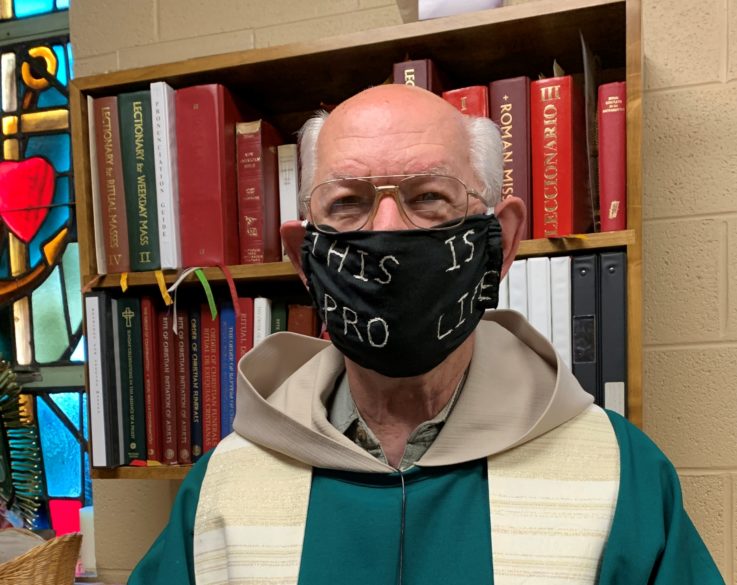
TUPELO – Father Henry Shelton shows off his mask stating “This is Pro Life” in the Sacristy before daily Mass on July 17 at St. James parish. Masks are required at Mass for all parishioners age 2 and up. (Photo by Michelle Harkins)

Grayson Foley is entering his first year of seminary formation. He recently graduated from St. Joseph high school in Madison.
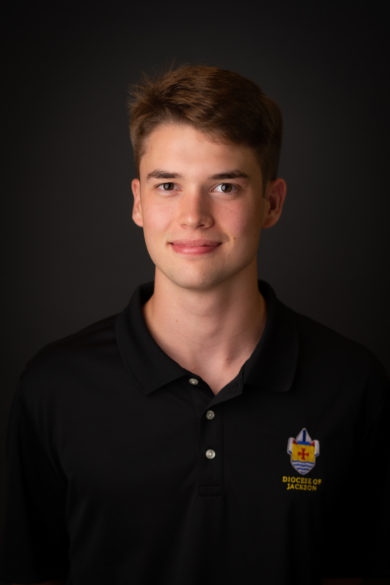
Home parish: St. Richard Jackson
Background:
I was born in Cincinnati, Ohio and my family moved to Jackson, Mississippi when I was in third grade. I’ve lived here ever since.
What is your vocation story? Who influenced you and why?
In the summer of 2018, I went to a Catholic youth conference called Steubenville on the Bayou with my youth group. It was a faith filled experience and was the first time I considered the priesthood. I had an amazing encounter with our Lord during the exposition of the Eucharist. After returning home I started to receive spiritual direction from Father Nick Adam. This helped me to pre-discern my vocation.
What draws you to diocesan priesthood? And to the Diocese of Jackson?
I am inspired by the selfless example of other diocesan priests and want to serve just as they do. Through prayer I feel like I am being called to serve the people of God in my home Diocese of Jackson.
What are your hobbies/interests?
I enjoy playing basketball, reading, biking, and fishing.
Who is your favorite saint and why?
St. Lawrence is my favorite saint and the one I chose for confirmation. He had a fervor and zeal for the Lord that was radiant even until his death. I pray that I can be as strong in spirit as he was.
Do you have a favorite devotion?
My favorite devotion is lectio divina, which is the prayerful reading of the Word of God. I am drawn to this devotion because it brings me to a deeper knowledge of Christ.
Do you have a favorite devotion?
I have a strong devotion to the Most Blessed Sacrament. I am drawn to the Lord in Eucharistic adoration, and that is where I find peace and rest in His arms.
What is something people might be surprised to learn about you?
Before my I started discerning my vocation I was convinced that I would play college basketball. They say “If you want to make God laugh, tell him about YOUR plans.”
Who is your favorite sports team? LSU Tigers
What has been the most rewarding part of being a seminarian? And the most challenging?
The most rewarding part so far has been the generosity of people and their love for seminarians. The most challenging part is the fact that I am coming right out of high school and will be one of the youngest seminarians at St. Joseph Seminary College.
What advice do you have for those discerning a vocation?
I would say what St. Pier Georgio had to say “With all the strength of my soul I urge you young people to approach the Communion table as often as you can. Feed on this bread of angels whence you will draw all the energy you need to fight inner battles. Because true happiness, dear friends, does not consist in the pleasures of the world or in earthly things, but in peace of conscience, which we have only if we are pure in heart and mind.”
“Despedida con Amor”
Por Maria Elena Mendez, MGSpS
TUSCALOOSA, Ala. – Aunque yo no estoy viviendo en Mississippi, siento la necesidad de concluir esta experiencia.
Las hermanas que terminan la misión de Mississippi son María Eugenia Moreno, Obdulia Olivar y María Josefa García. Sin duda, están comunidades donde ellas trabajan, Santa Teresa en Jackson, San Miguel en Forest y San Martin de Porres en Morton, han sido fuertemente golpeadas por el COVID-19 y por las redadas de emigración de agosto de 2019, en siete plantas procesadoras de pollo de Mississippi.
Las Iglesias se convirtieron en lugares de acopio, de ayuda nacional y local, de apoyo moral y económico. Las hermanas Maria Eugenia y Obdulia, aquí se convirtieron en madres, consejeras, puentes de recursos y, junto con ellos lloraran sus pérdidas y abogaron por ellos. Hace casi un año de esto y aún no han salido, literalmente de la crisis. Más tarde, en marzo 2020, se empezó a hablar del coronavirus y de nuevo, el condado Scott, es uno de los más golpeados afectando a muchas familias hispanas; es como quien pelea con dos enemigos a la vez. La comunidad que habían construido por años, se desmoronó. Muchos se cambiaron de Estado y la Iglesia fue Madre y como otras madres, esta tratando de recoger lo que se había caído.
Nuestra presencia por 16 años en la Diócesis de Jackson marcó nuestra vida, como personas, como comunidades, como provincia y como congregación. Hoy decimos gracias por todos los regalos en todas sus expresiones que hemos recibido, los que nosotras hemos ofrecido, las semillas que hemos plantado y los frutos que hemos cosechado y por los que se han esparcido más allá de Mississippi, con las personas que se han ido a otros lugares. Con nuestra gratitud les decimos que estarán siempre en nuestro corazón, en nuestra oración y serán parte de nuestra vida como congregación. Nos despedimos con el Salmos 126:
Cuando el Señor cambió la suerte de Sión, nos pareció que estábamos soñando.
Entonces nuestra boca y nuestros labios se llenaron de risas y gritos de alegría;
Sí, el Señor había hecho grandes cosas por nosotros, y estábamos alegres.
¡Señor, haz que cambie de nuevo nuestra suerte, como cambia el desierto con las lluvias!
Los que siembran con lágrimas, cosecharán con gritos de alegría.
Aunque lloren mientras llevan el saco de semilla, volverán cantando de alegría, con manojos de trigo entre los brazos.
También nosotras vamos llorando, cargando las gavillas de tanta gente maravillosa que acompañó y creció junto con nosotras alrededor de toda la Diócesis de Jackson.
Gracias.
Ana Gabriela Castro, Yesenia Fernández, Gabriela Ramírez, María Josefa García, María Eugenia Moreno, Obdulia Olivar, Magdalena Carrillo, María Elena Méndez y todas las Misioneras Guadalupanas del Espíritu Santo
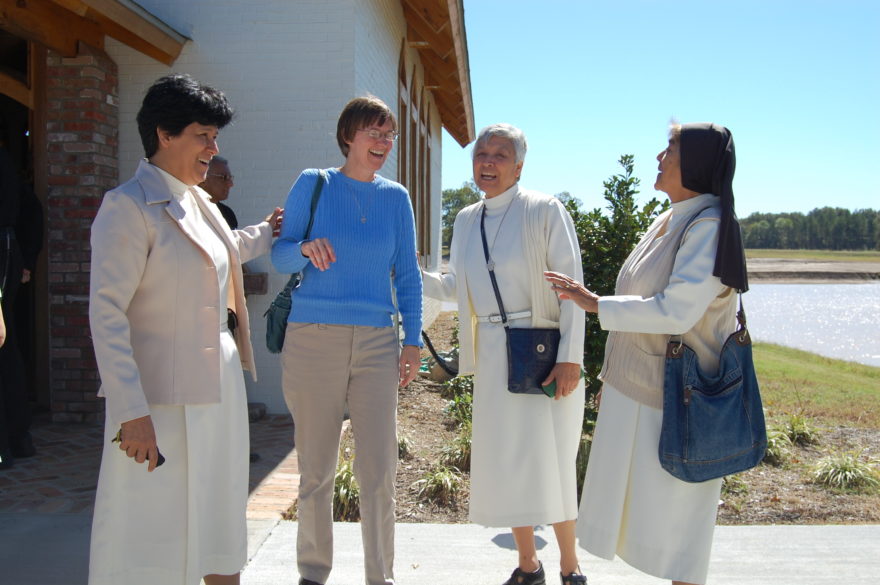
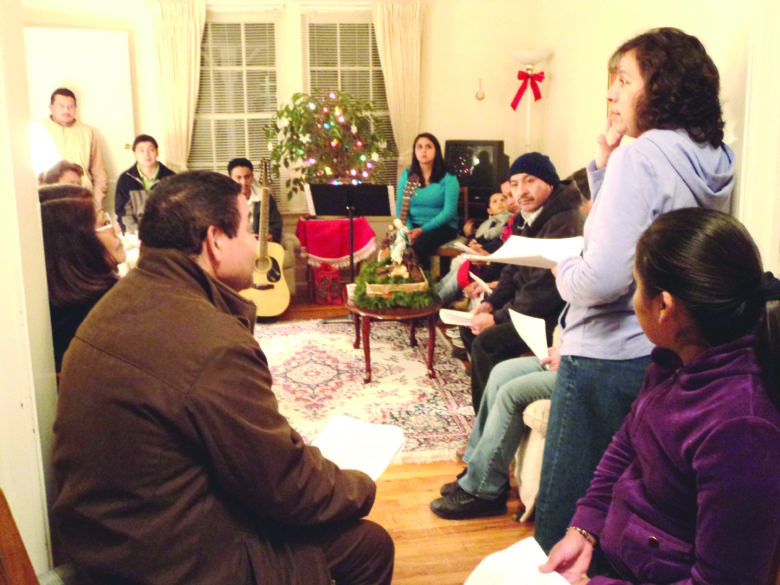
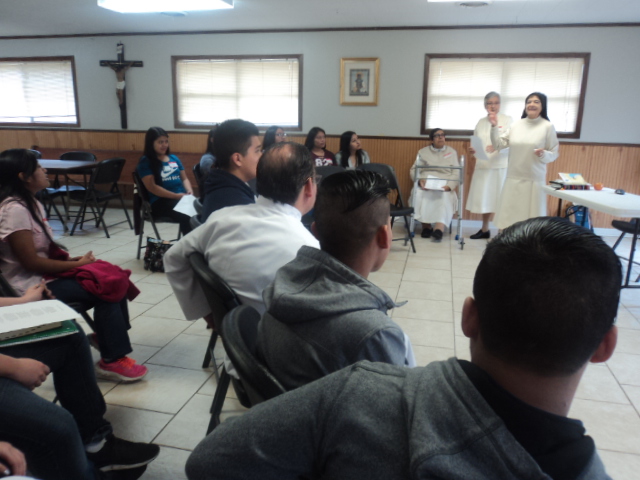
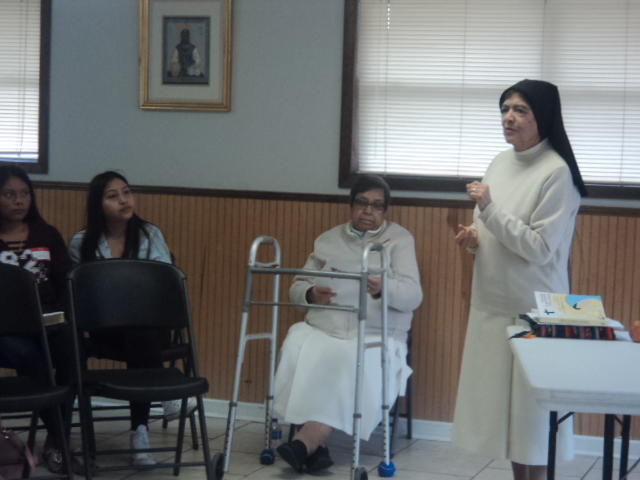
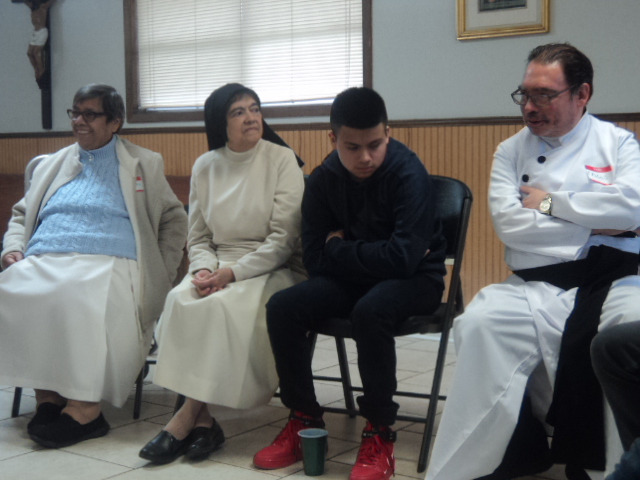
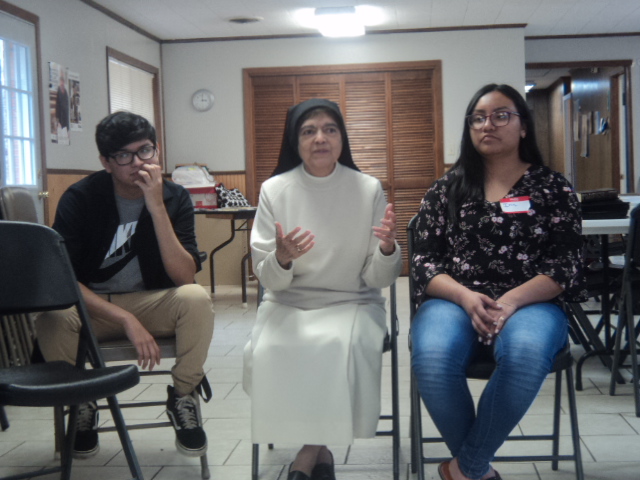
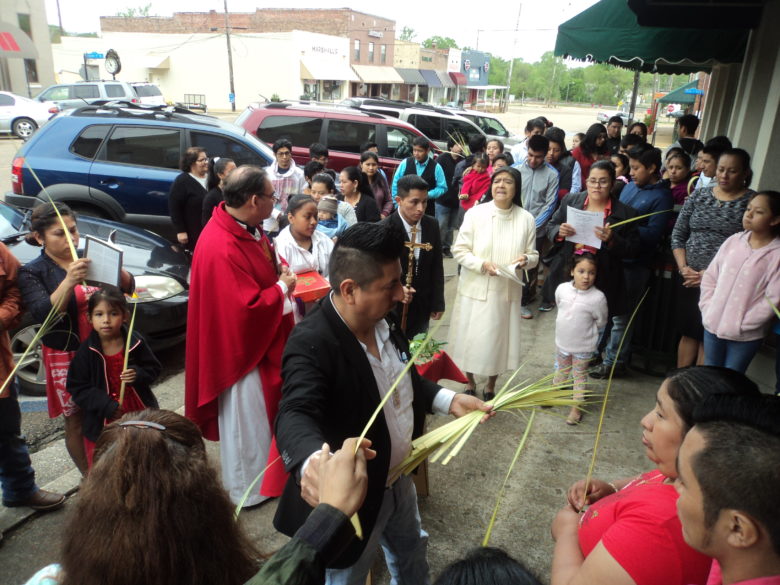
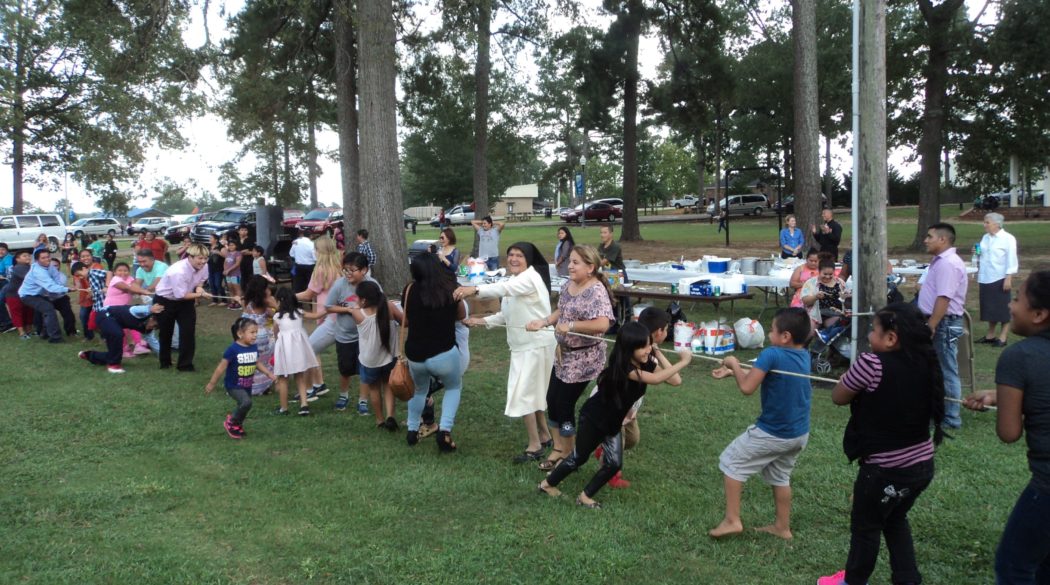
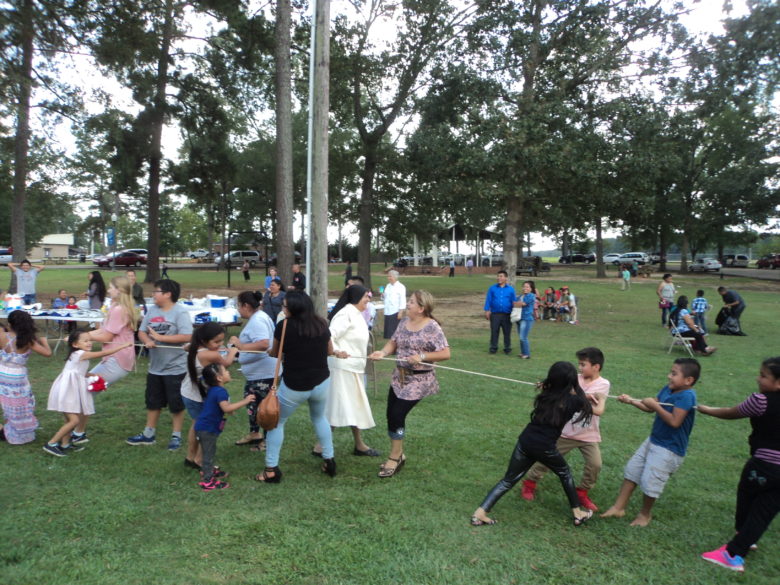
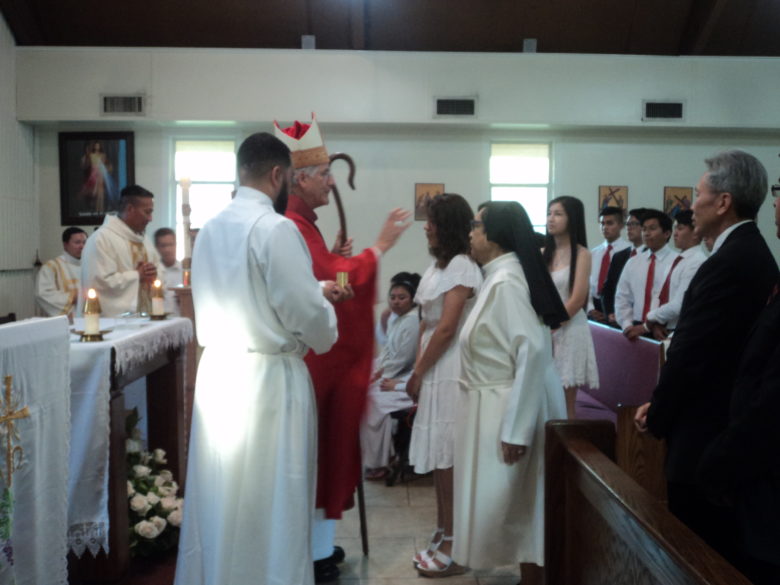
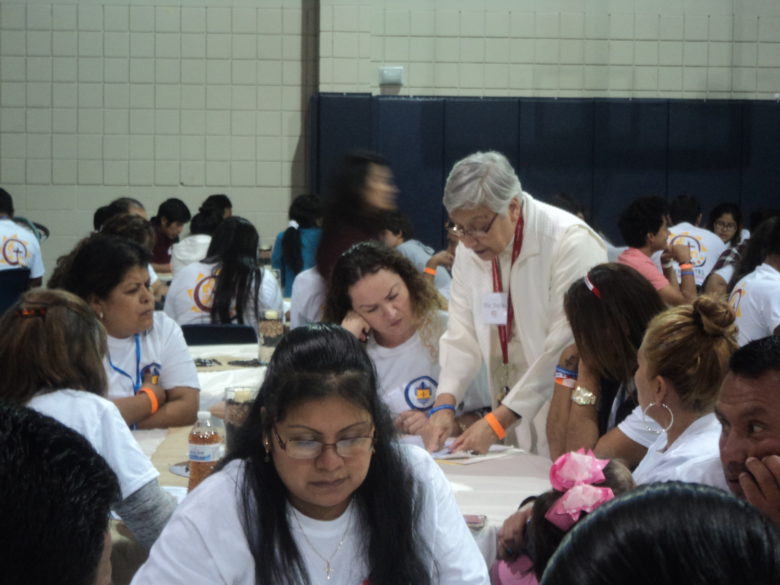
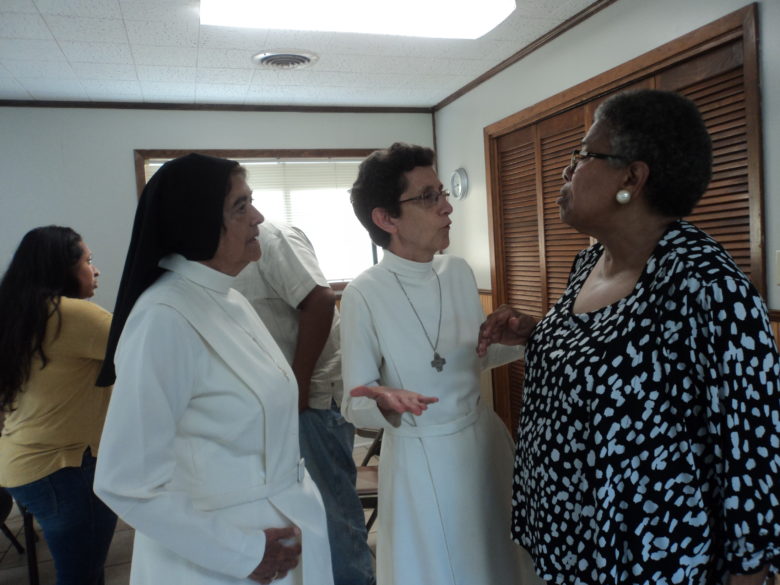
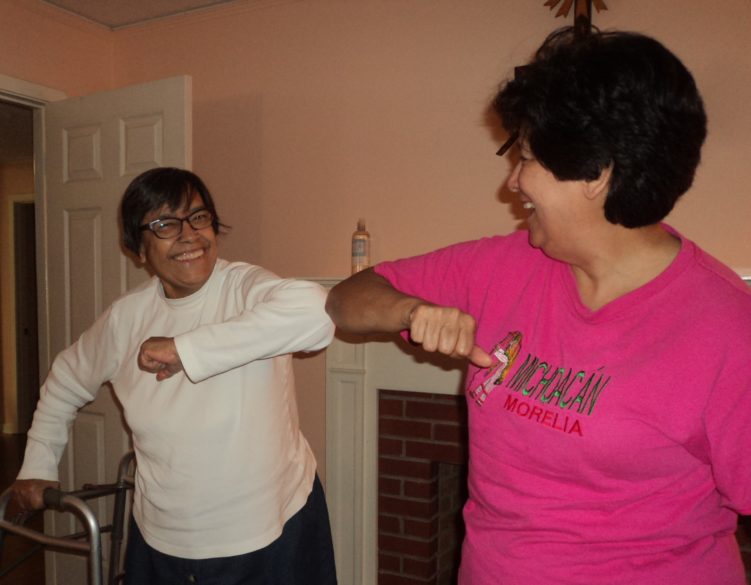
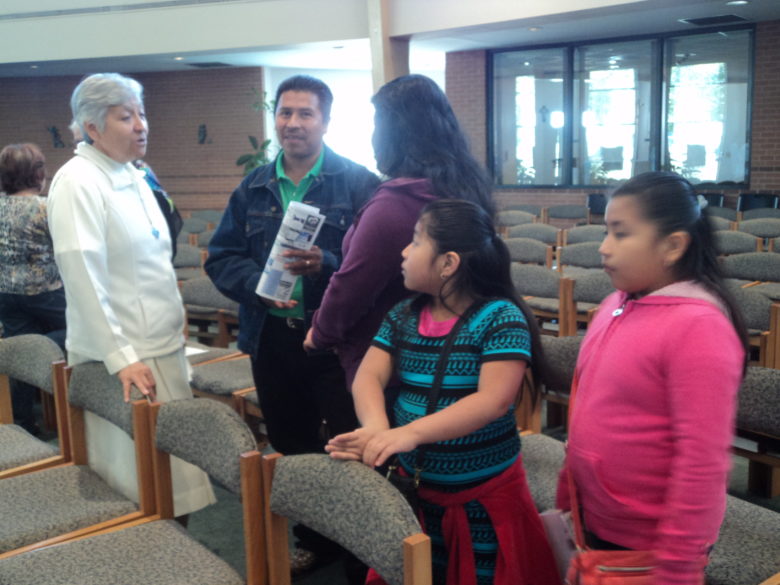
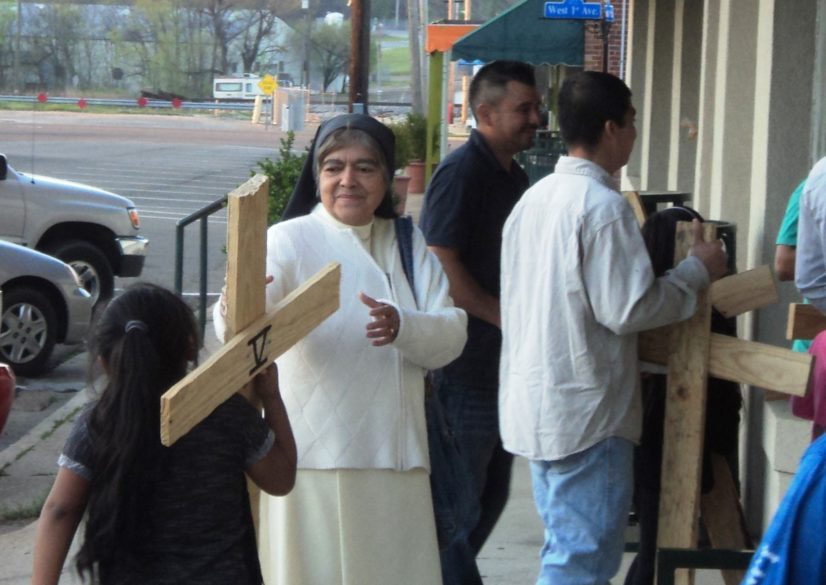
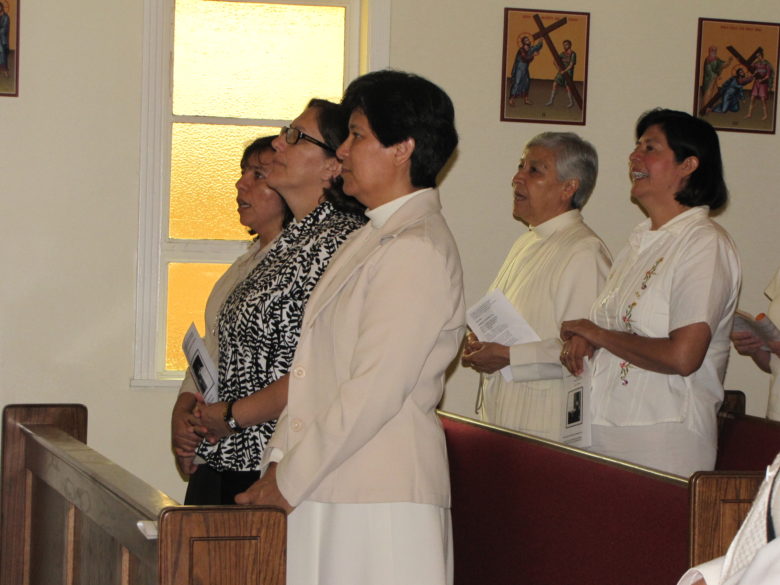
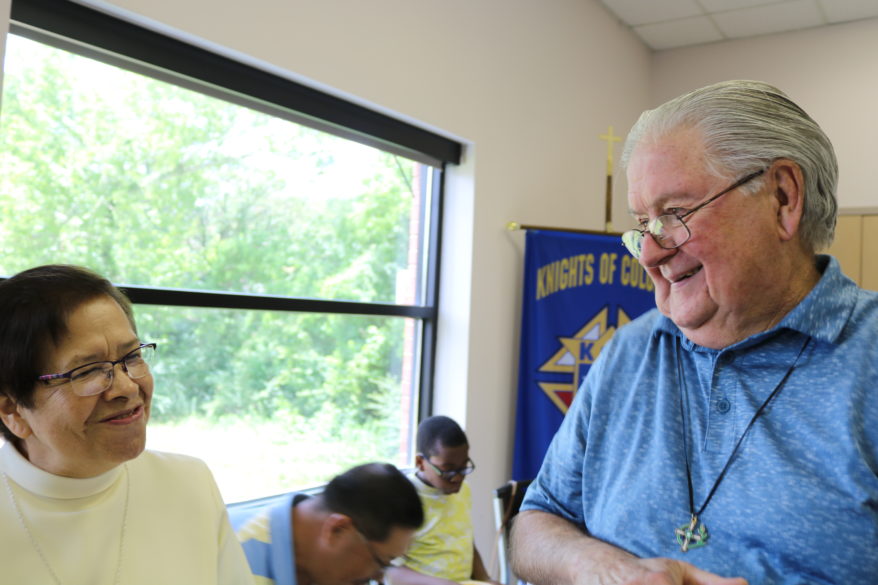
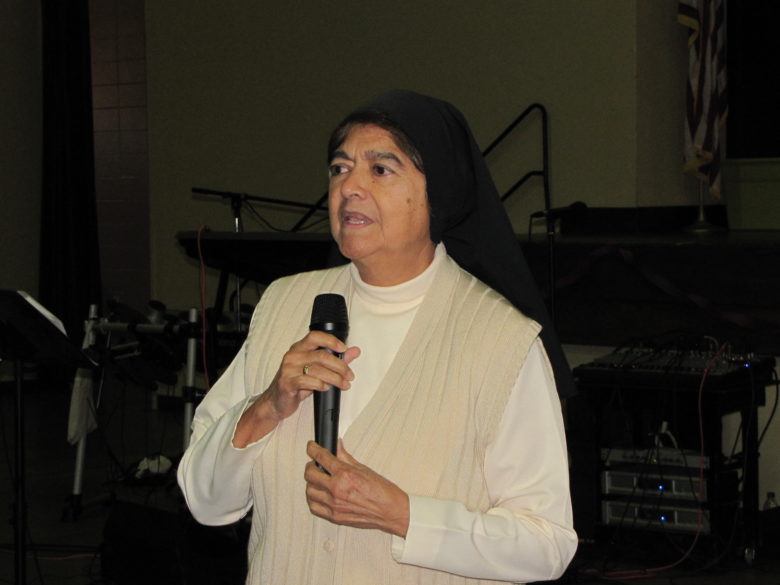
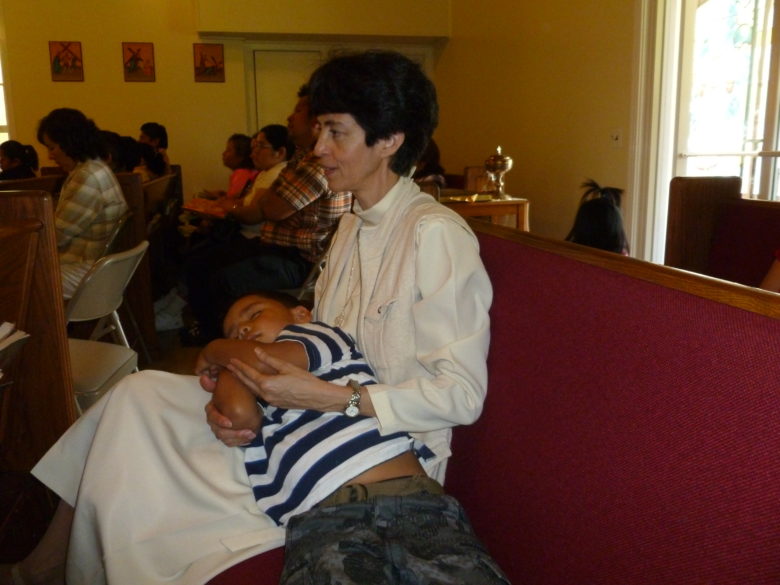
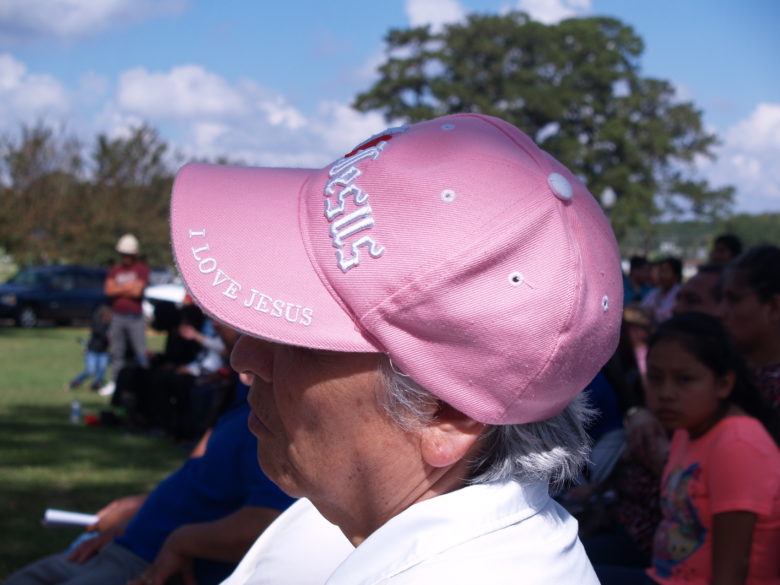
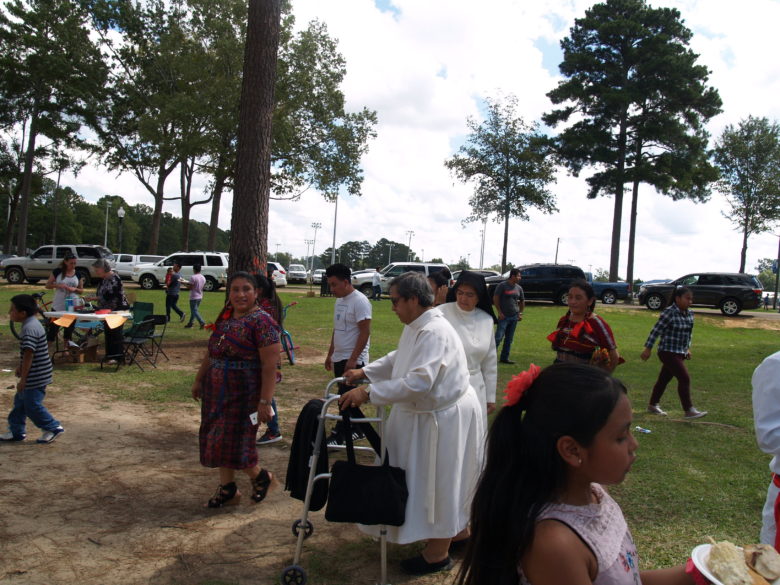
Por Berta Mexidor
JACKSON – Acerca de la experiencia en Mississippi de las hermanas Guadalupanas del Espíritu Santo, la hermana Maria Elena Mendez, MGSpS responde estas preguntas:
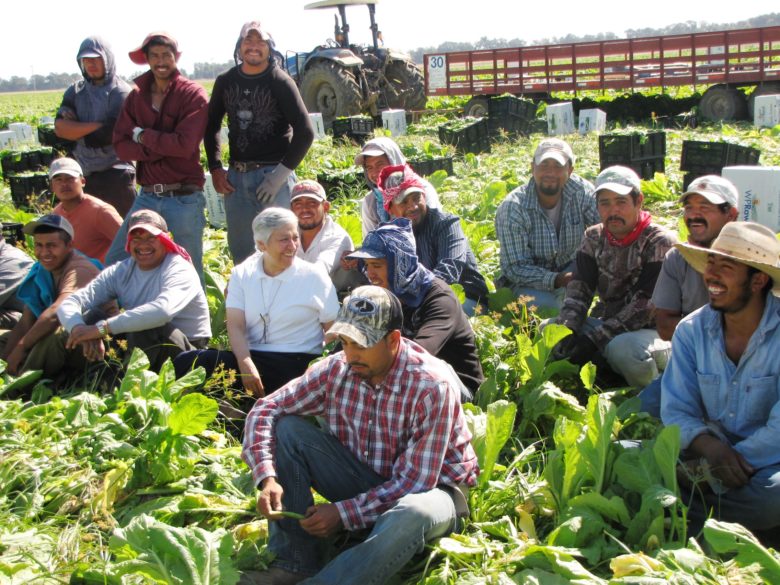
P: ¿Cómo llega la Misión Guadalupana a estas tierras?
R: Las hermanas Ana Gabriela Castro, Yesenia Fernández y Gabriela Ramírez llegaron a Forest, Misisipi el miércoles 17 de agosto del 2004, invitadas por el padre Richard Smith, encargado de la parroquia San Miguel en Forest. Ellas llegaron entusiasmadas y con muchas ganas de misionar por estas tierras, venían cargadas de experiencias acumuladas de varios lugares del país y del extranjero, experiencias variadas de tipos de apostolados y con varias cajas de posibles herramientas para ser usadas en la nueva misión. Al principio, solo estaban Yesenia y Ana Gabriela en Forest y Gabriela María en el Ministerio Hispano (MH) dentro de la cancillería, pero durante el transcurso del tiempo, unas hermanas llegaban y otras se iban tanto para el trabajo en Forest como de la oficina de MH
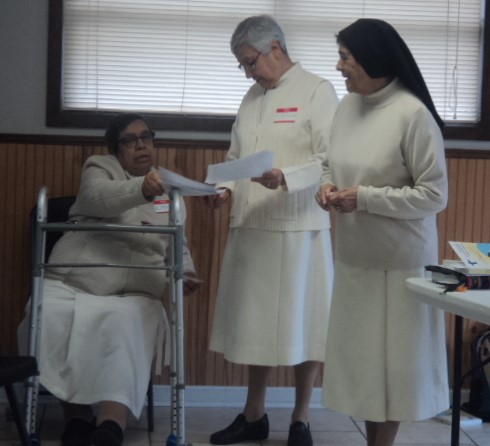
P: ¿Solo existió la Misión en Forest?
R: No, abrimos otras comunidades: Pontotoc, Natchez, Santa Teresa, Jackson, aparte de San Miguel y el trabajo diocesano que ya teníamos. Pero antes del establecimiento de estas nuevas comunidades, las junioras, incluyéndome a mí, vinimos por un mes a una misión solicitada por la oficina del MH, a las parroquias del Sagrado Corazón, Canton, Santa Ana, Carthage, Santa Teresita, Kosciusko y la misión San Martin en Hazlehurst
P: ¿Cómo fueron los inicios en el MH?
R: Gaby Ramírez, para diferenciarla de Gaby Castro, trabajaba a nivel diocesano haciendo equipo con el H. Ted Dausch CFC., director del MH. Algo que llamó mi atención del hermano Ted, al principio de mi llegada, fue escucharlo decir que un día fue a Forest, a un retiro que las hermanas organizaron con la gente y le gustó mucho. Al verlas trabajar se dijo “esto es lo que estamos necesitando nosotros en la diócesis para potenciar líderes hispanos”. El Hermano Ted, siendo un religioso anglo, sin hablar español y sin experiencia apostólica dice que un día a Dios le habló a en estos términos, “Dios mío, ayúdame a saber qué es lo que estoy haciendo y, si no, mándame alguna ayuda” y “fue así como Dios me respondió, mandándome un par de Misioneras Guadalupanas del Espíritu Santo, para coordinar el MH en la diócesis.”
En Forest, el trabajo de Gaby Castro y Yesenia fue excepcional y marcaron la pauta para las demás. Ellas caminaron con la gente en sus necesidades, iban y venían al hospital, al consulado mexicano, a la cárcel cuando a alguno era detenidos en los constantes retenes de emigración, o por no tener licencias. Ellas iban a sacarlos del centro de detención; el inglés era requerido para todos estos trámites, y en ese tiempo pues no había casi ningún lugar con traductores y casi nadie tenía licencia de conducir, más que la de Dios.
P: ¿Cuáles fueron los retos al crear líderes?
R: Ellas buscaban formas nuevas, a través de pequeños talleres, retiros y visitas a sus hogares para potenciarlos de forma personal, pero la constante movilidad las dejaba muchas veces frustradas para volver a empezar cuando estos líderes se iban a otro lugar en busca de trabajo. Pero, así como se iban unos, llegaban otros a seguir; la motivación misionera no se acababa por eso.
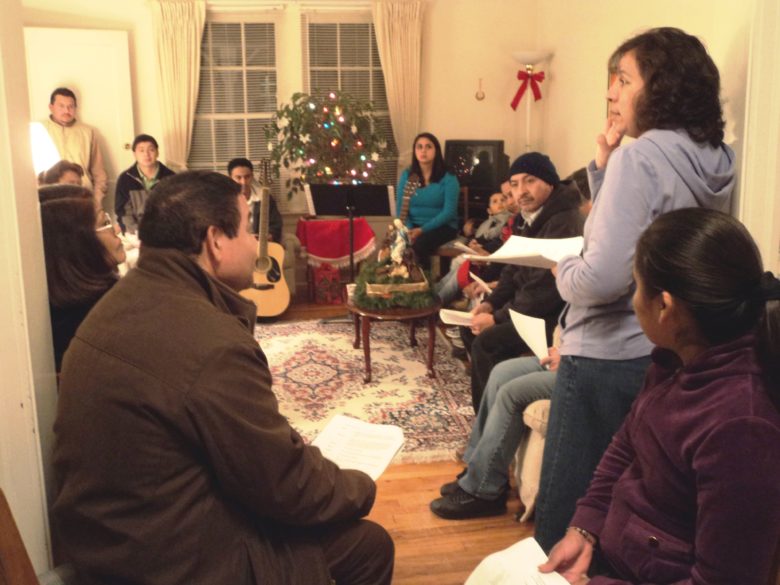
P: ¿Qué ha sido Mississippi para ustedes?
R: Misisipi, nos hizo caer en la cuenta de que la misión aquí, aún es estos momentos, es tierra de misión, con migrantes de primera generación y muy diferente a las que ya conocíamos en otros lados de años. Tuvimos que caer en la cuenta, desde las constantes frustraciones y experiencias que íbamos adquiriendo, que nuestro trabajo era acompañar, estar presentes en sus alegrías y dificultades, caminar con la ellos, salir al encuentro de sus necesidades y darles la formación, en lo que estuviera al alcance de ambos, para ir potenciando liderazgo en la comunidad.
Todo esto y más, tal como lo hizo la Virgen de Guadalupe, partiendo desde nuestro carisma Sacerdotal-Guadalupano y nuestros carismas personales.”
Por Roberto Mena, St
CARTHAGE – Dicen que nada volverá a ser como antes, pero … ¿Y si lo que estuviera por venir fuese mucho mejor?
Las crisis son ocasiones para auditar nuestra forma de vida, explorar las causas que la activaron y abordar el futuro desde una nueva mentalidad. Esta crisis global nos ha permitido redescubrir valores como el cuidado, la gratitud, la humildad, la solidaridad, la paciencia, la perseverancia, la generosidad y la entrega, valores que extrañamente ocupan un lugar relevante en nuestra sociedad Todo ello nos exige repensar cómo vivimos, de qué forma nos relacionamos, producimos y consumimos, pero, a su vez nos invita a imaginar un futuro distinto, a soñar otro mundo posible para nosotros y para las generaciones venideras.
“La esperanza no es ingenuidad ni es una mirada pueril incapaz de ver carencias en la realidad: es una mirada que entrevé posibilidades y no es un brindis al sol”. Francesc Torralba.
La esperanza tampoco es consecuencia de un cálculo racional, no es una serie de expectativas conforme a la realidad que nos rodea. Más bien es una virtud por medio de la cual sentimos el apoyo incondicional de Dios para apreciar con sus ojos los acontecimientos cotidianos. Yo veo la esperanza como “una actitud, un modo de estar, de mirar. Una mirada que ve posibilidades. Nuestra mirada no es sin sentido: es una mirada esperanzada que mueve a la acción y que no paraliza ni lleva a la desesperación.”
La desesperación es lo contrario de la esperanza: En la desesperación no hay ninguna posibilidad, es un cuarto sin luz. Es ahogo y claustrofobia. En cambio, cuando uno tiene esperanza ve posibilidades somos capaces de una mirada Pascual.
En este momento del Coronavirus, es preciso “pasar del yo al nosotros”. En la cultura narcisista prima el “yo y mis cosas” y es necesario pasar a “una cultura global, a una conciencia global y a una ética mundial”. Esta transición es imprescindible.
El individualismo no sirve para salir de las crisis; esta crisis global nos obliga a un cambio, de la conciencia provinciana a la global, por eso es un aprendizaje y todavía estamos muy lejos de vivir como seres solidarios.
“La esperanza tiene siempre que ver con el futuro. La visión cristiana del futuro tiene que ver con el futuro: no estamos solos, estamos animados por el espíritu de Dios”.
Las crisis enseñan, los fracasos ayudan a mejorar, porque en el ser humano hay tendencias egoístas y altruistas”: por eso el Papa Francisco nos afirma que todos estamos en la misma barca: “todos frágiles y desorientados; pero, al mismo tiempo, importantes y necesarios, todos llamados a remar juntos, todos necesitados de confortarnos mutuamente.
“Esta prioridad por el más vulnerable, este imperativo prioritario por el más frágil deriva nítidamente del ADN del Evangelio” Papa Francisco cuando habla de ir a las periferias geográficas y existenciales. Discurso a los Cardenales en el Conclave 3 de marzo de 2013.
La crisis y el fracaso nos ayudan y enseñan, en cambio el éxito nos confirma y nos lleva a la repetición. Las crisis son un aviso para tomar nota colectivamente. El éxito no nos estimula, ni nos lleva a la cooperación, imaginación ni inteligencia”.
Cuando uno experimenta la impotencia quiere aprender de los otros y que esta crisis nos ayuda a recomponer nuestra pirámide de valores: quiénes son los verdaderos héroes, qué es lo esencial y lo relevante.
¿Pero la esperanza es un don natural? Hay algo dado, de don, en esta mirada esperanzada, como con la constancia o la humildad. La virtud humana de la esperanza puede ser entrenada, si no fuera así no tendría ningún sentido enseñar virtudes ni cultivarlas. Creemos que es posible activarla”.
“En este confinamiento hemos reconocido nuestra fragilidad, contingencia y también gratitud. Esta crisis nos puede hacer mejores personas”, confiesa esperanzado el Sucesor de Pedro.
Sta. Teresa Benedicta de la Cruz decia, “Donde otros ven vacío, muerte y corrupción, nosotros confiamos en que estamos sostenidos y que todo está por hacer. Esto es esperanza”.
A mi entender tres pilares pueden hacer la diferencia entre un abordaje autoritario, egoísta, o comunitario y comprometido para prevenir los riesgos y disminuir las consecuencias cotidianas de la pandemia:
No estigmatizar; Convencer para cooperar; y Recordar que el distanciamiento social es un factor de protección temporal inevitable, pero nunca podría reemplazar la riqueza de la interacción social del lenguaje corporal y del acercamiento humano.
Por eso es preciso que a nivel de Iglesia y sociedad podamos todos los sectores vivos: Educar a la esperanza, contra el escepticismo; Educar para toda la vida, no sólo para la escuela; Educar a la incidencia no para la perplejidad y acomodación; Educar a un mundo reconciliable, no irremediable; Educar a la interioridad, al silencio, al discernimiento; Educar a la profundidad, no al modismo; Educación crítica, no ingenua y Educación interreligiosa, no proselitista
A nivel personal:
No tengo miedo del mundo nuevo que surge; Lo que me espanta es que podamos dar respuestas de ayer a los problemas de mañana; y No pretender defender nuestros equívocos, pero tampoco queremos cometer el mayor de todos: El de esperar de brazos cruzados y no hacer nada por miedo de engañarnos.
Le pido a Dios tenga discernimiento para poder seguir teniendo una mirada creyente y esperanzada, construyendo un mundo compasivo y misericordioso desde los marginados y en mi caso, como Sacerdote Misionero: desde los inmigrantes en Estados Unidos, que yo pueda ver las huellas de Cristo en mi propia realidad abrazando la humanidad rota y poder aportar con la ofrenda de mi vida, entrega y compromiso.
(Padre Roberto Mena, ST es Ministro Sacramental de St Michael Forest)
Vírgenes y Santos
La transfiguración del Señor. 6 de agosto
Santa Clara. 11 de agosto
Solemnidad de la Asunción de la Virgen María. 15 de agosto
Santa Rosa de Lima, Virgen. 23 de agosto
Sigue en facebook
@Diócesis Católica de Jackson
@VaticanNews Español
@EWTN Español
Algunas parroquias están ofreciendo la Santa Misa, el Sacramento de la Reconciliación y la Adoración. Consulte con su parroquia para más detalles.
Antecedentes: Soy de Michoacán, México, soy el mayor de siete hermanos.
Parroquia de origen: San Andrés Apostol
Santos favoritos y por qué?
San Francisco de Asís por su vida sencilla y su humildad, y San Juan Bosco porque estaba muy preocupado por los jóvenes y se esforzó por evangelizarlos y llevarlos a la iglesia.
¿Quién te concedió la ordenación y por qué?
Padre Mike O’Brien. Él es mi mentor, mi amigo. Realmente me enseñó cómo ser un buen sacerdote servidor.
¿En qué parroquias has servido?
Meridiano de San Patricio; San Francisco de Asís Brookhaven; Cristo el rey Jackson; Nuestra Señora de las Victorias Cleveland; Cantón del Sagrado Corazón y San Francisco de Asís Madison.
¿Puedes contarnos un poco sobre tu historia vocacional?
Realmente me gustó asistir a la Misa dominical en mi pueblo, y cuando tenía unos 17 años, me invitaron a un retiro vocacional de fin de semana. Durante las conversaciones y la adoración, sentí la fuerte atracción del llamado de Dios al sacerdocio. Decidí comenzar mi discernimiento vocacional y entré al seminario justo después de ese retiro.
Mientras estudiaba en el seminario en Morelia, México, conocí a los directores vocacionales de la diócesis de Jackson. Me invitaron a servir en esta diócesis, por lo tanto, me mudé a E.U. en 2014 para estudiar inglés y teología. Agradezco todas tus oraciones. Espero con la gracia de Dios hacer un ministerio fructífero en nuestra diócesis
¿Qué consejo tienes para quienes disciernen una vocación?
Si realmente amas a Dios, a tu fe y a la Iglesia y quieres hacer algo al respecto, pon todo en las manos de Dios, Él sabe qué hacer con eso.
¿Cómo te sientes de ser un sacerdote en medio de una pandemia?
Sí, sé que mis compañeros de clase y yo somos los sacerdotes de COVID-19. Creo que mi sacerdocio es traer el amor y la esperanza de Dios precisamente ahora, durante estos tiempos difíciles, cuando nuestros feligreses necesitan la presencia de Dios.
¿Puedes compartir algo sobre ti que la gente no sepa?
Bueno, tal vez, que me encanta tocar la batería.
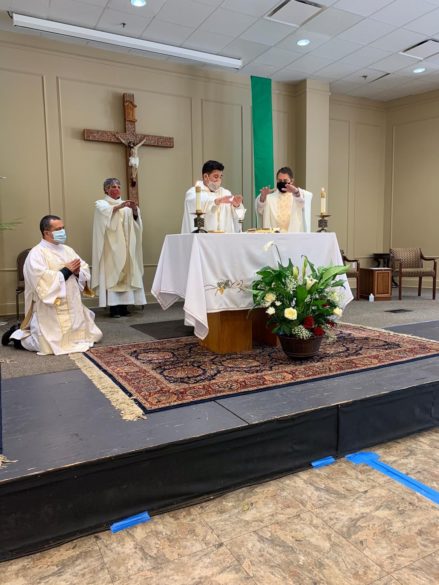
Antecedentes: Nacido en Vietnam, vino a los Estados Unidos en 2013, estudió para la Diócesis de Jackson en el St. Joseph Seminary College en Covington y el Notre Dame Seminary en Nueva Orleans.
Parroquia de origen: San Alfonso McComb
Santos favoritos y por qué?
San Juan Neumann de la República Checa. Emigró a los Estados Unidos y trajo a Dios a los pobres y desatendidos.
¿Quién te concedió la ordenación y por qué?
Padre Peter Hoai Thanh. El es mi padre espiritual.
¿En qué parroquias has servido?
San Patricio y San José en Meridian
¿Puedes contarnos un poco sobre tu historia vocacional?
Recuerdo eso cuando era un niño de unos 11 años. Asistí a una misa de ordenación en mi parroquia, y después de eso, ansiaba ser sacerdote. Entonces, decidí inscribirme en el programa del sacerdocio en mi parroquia. Después de terminar la secundaria, fui al seminario. Una cosa que creo que me atrajo al sacerdocio es que, como cristianos, necesitamos tener una vida espiritual rica y sacrificarnos por los demás. Sin embargo, especialmente, quiero llevar a Jesús a todos porque solo Jesús puede liberarnos de nuestros pecados y brindarnos la verdadera libertad y felicidad.
¿Qué consejo tienes para quienes disciernen una vocación?
Mi consejo será que si quieres ser sacerdote, debes tomar “un riesgo”. Este riesgo significa que debes confiar en Dios, buscarlo y anhelarlo. También ama a María, Madre de Dios. Ella te ayudará a superar todo.
¿Cómo te sientes siendo un sacerdote en medio de una pandemia?
Ser sacerdote en esta situación de pandemia será un desafío porque no habrá muchas personas que pudieran participar en la Misa. Creo que Dios me recompensará dándome una gracia especial y ayudándome a dar buenos frutos en mi ministerio a los demás.
Por Berta Mexidor and Joanna Puddister King
JACKSON – El obispo Joseph Kopacz ordenó al sacerdocio a César Sánchez Fermín y Andrew Nguyen en la Catedral de San Pedro en Jackson, el sábado 27 de junio.
Aunque la pandemia de COVID-19 retrasó la ceremonia, programada originalmente para mayo, esto no pudo detener la celebración de los dos hombres que se unieron al sacerdocio.
El evento se hizo diferente debido a las normas de seguridad vigentes. Todos los asientos fueron bloqueados para permitir el distanciamiento social y se alentó a los parroquianos de la diócesis a seguir la transmision en vivo de la Misa de Ordenación a través de Facebook en lugar de asistir en persona. Los sacerdotes diocesanos, seminaristas y algunos invitados especiales seleccionados por los ordenados, todos, llevaban máscaras durante todo el servicio.
“El Señor ha bendecido nuestra diócesis con hombres santos de todos los rincones de la tierra. ¡Bienvenidos, padre Andrew y padre Cesar!,” comentó Mark Beyea, de Clinton, en Facebook. Esta vez, el espíritu de gratitud y felicidad de la ocasión no pudo ser robado por la pandemia.
La Misa de Ordenación también celebró la diversidad cultural de la diócesis, la herencia vietnamita del ahora padre Andrew y la herencia hispana del ahora padre Cesar, que proviene de Michoacán, México.
Al comenzar su homilía, el Obispo Kopacz mencionó la iglesia universal y cómo todos “se reunieron alrededor de la Palabra de Dios cuando esta se proclamó tan hermosa y profundamente en español, vietnamita e inglés” durante esta Misa de Ordenación. El Obispo reconoció también el alcance que tuvo la transmisión en vivo del evento, haciendo que llegara hasta los familiares y amigos del Padre Sánchez, en Michoacán, México, del Padre Nguyen en la ciudad de Ho Chi Minh, provincia de Ninh Thuân en Vietnam.
La Misa de ordenación incluyó muchos momentos emocionantes, especialmente cuando los hombres se postraron, en un acto de humilde oración y rendición, ante el altar cuando se invocaba la letanía de todos los Santos, cantada por el Padre Aaron Williams y los seminaristas Andrew Bowden y Tristan Stovall.
Después de la imposición de manos y la oración de ordenación, se procedió a la investidura de la estola y la casulla de los dos nuevos sacerdotes. El padre Nguyen fue investido por el padre Peter Hoai en Thanh y el padre Sánchez fue investido por el padre Mike O’Brien del Sagrado Corazón en Cantón.
Los padres Andrew y César están siguiendo las Buena Nueva de las Escrituras, y con su ordenación, ambos prometieron al Obispo Kopacz, propagarla para continuar salvando almas.
La felicidad de la ocasión fue compartida en Facebook, con emojis y comentarios de los espectadores:
Jim McCraw, de Jackson, escribió: “¡Felicitaciones, padre Andrew! Amo tu espíritu tranquilo y confiado. ¡Marcarás la diferencia! Tu afecto por Meridian es difícil de ocultar.”
Cony Solano, reaccionó, “Dios es bueno y nos regala nuevos Sacerdotes.”
“Oraciones de acción de gracias por estos dos jóvenes por responder al llamado al sacerdocio. Que el Señor los bendiga en su servicio,” escribió Mary P. Robinson de Madison.
Izamar Mazy, de la Catedral de San Pedro escribió, “Que bendicion, lo tendremos en nuestras oraciones, Gracias por darle el SI al Señor!!”
Después de la celebración de la Eucaristía, el obispo Kopacz invitó al padre Cesar y al padre Andrew a hablar, desde la distancia, con sus familiares que no pudieron estar presentes en el evento debido a la pandemia.
En sus lenguas maternas e inglés, el padre César cerró diciendo que ha tenido un maravilloso sistema de apoyo de todos aquellos en la Diócesis de Jackson y que “siempre se ha sentido como en casa, …Y sabes que el hogar es donde está tu corazón, así que realmente siento eso. Ahora, la diócesis de Jackson es mi segundo hogar,” concluyo el padre César y a su vez el padre Andrew habló en vietnamita con los miembros de su familia, presentes y lejanos, agradeciendo a todos por sus oraciones y apoyo. En sus comentarios finales, el Obispo Kopacz les pidió a todos el “continuar orando por los sacerdotes … y continuar juntos como el pueblo del Señor”.
Al final de la Misa ambos sacerdotes bendijeron a algunos de los presentes. Por la tarde de este día, el padre César bendijo además a los parroquianos del Sagrado Corazón en Cantón, quienes viajaron en caravana alrededor de la iglesia, para recibir la misma desde sus autos.
El padre César es nombrado vicario parroquial en St. James Tupelo y St. Christopher Pontotoc, donde celebró su primera Misa el Domingo 28
El padre Andrew es nombrado vicario parroquial en las parroquias de San Patricio y San José en Meridian. Celebró su primera Misa en la parroquia Asunción de Maria, en Luisiana, el 28 de junio.
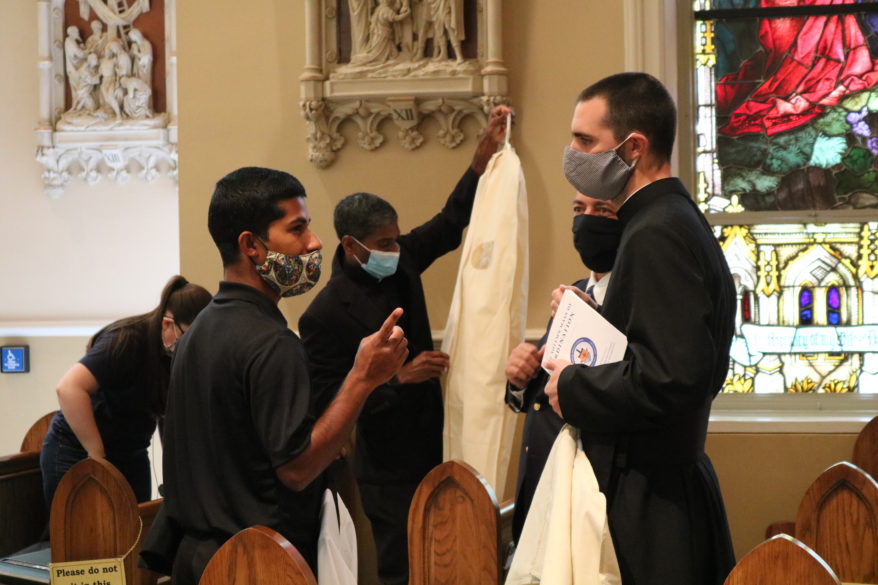
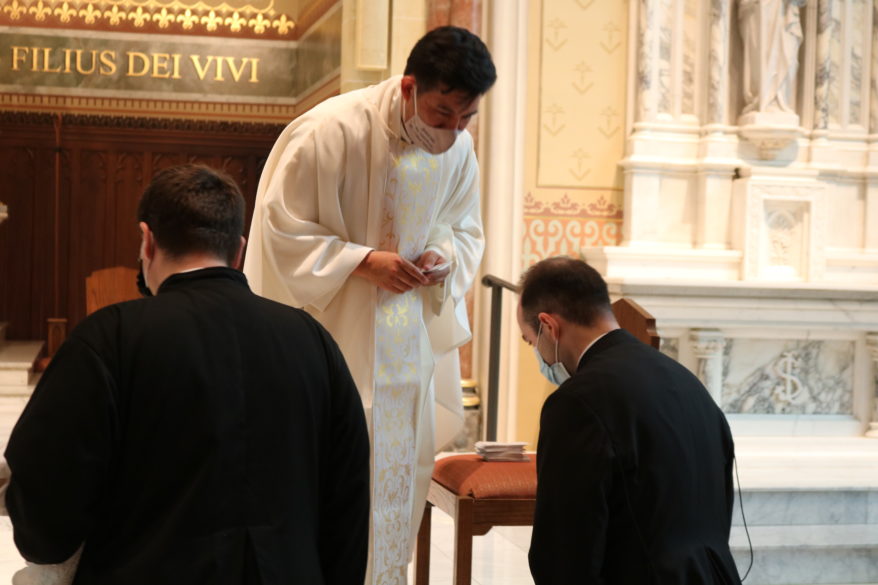
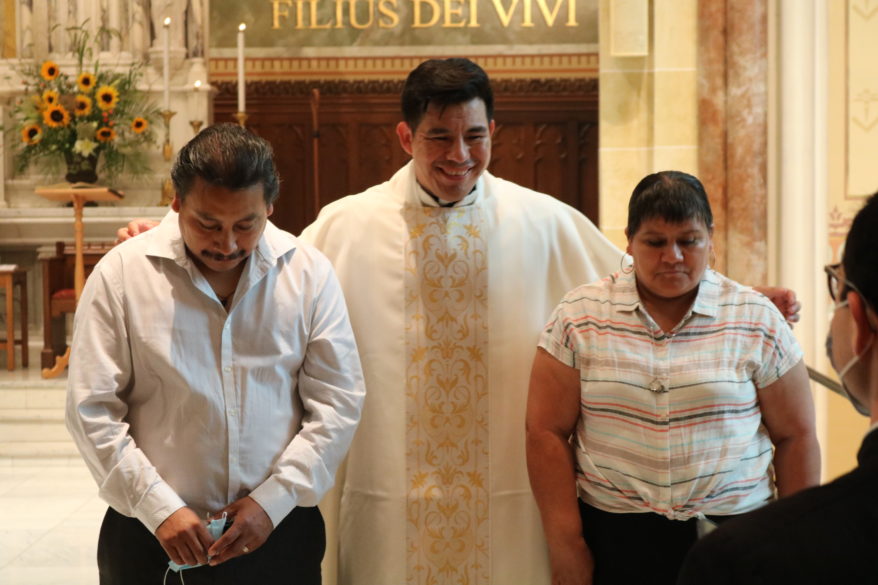
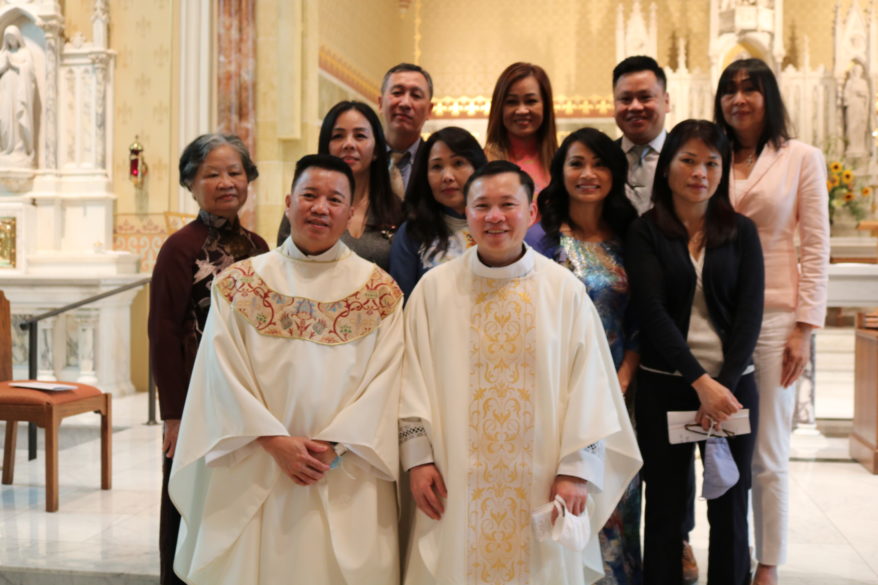
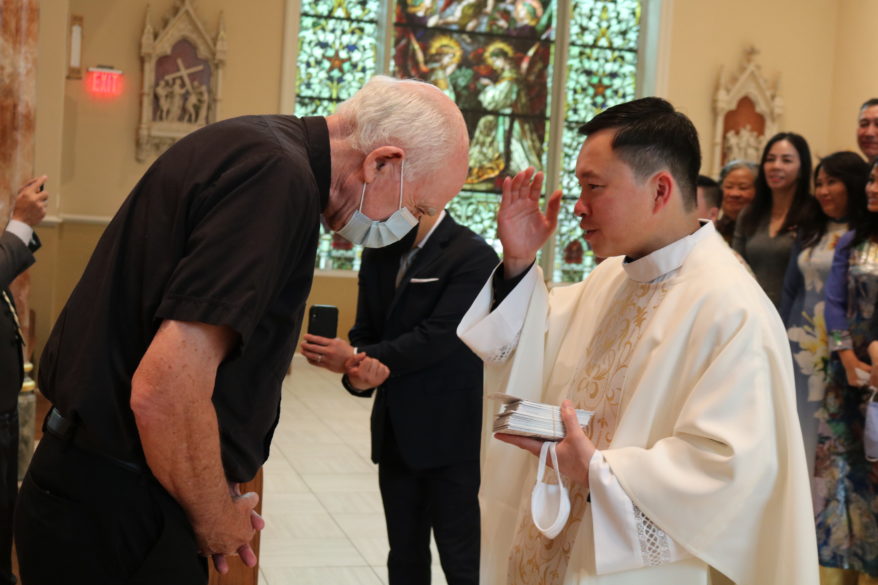
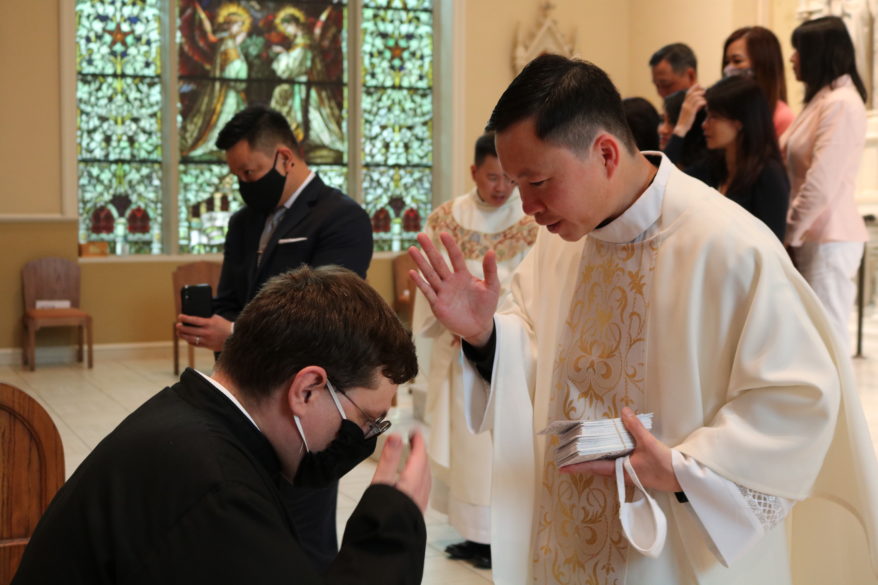
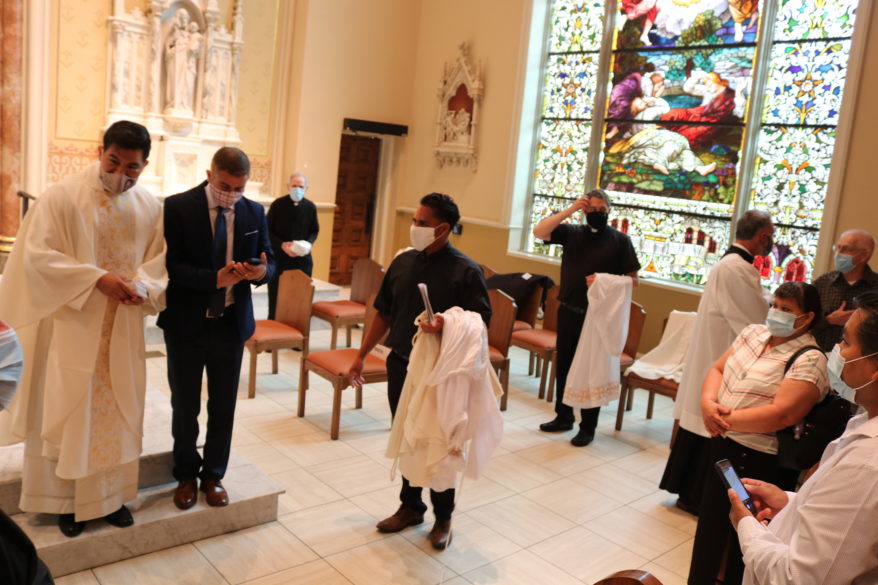
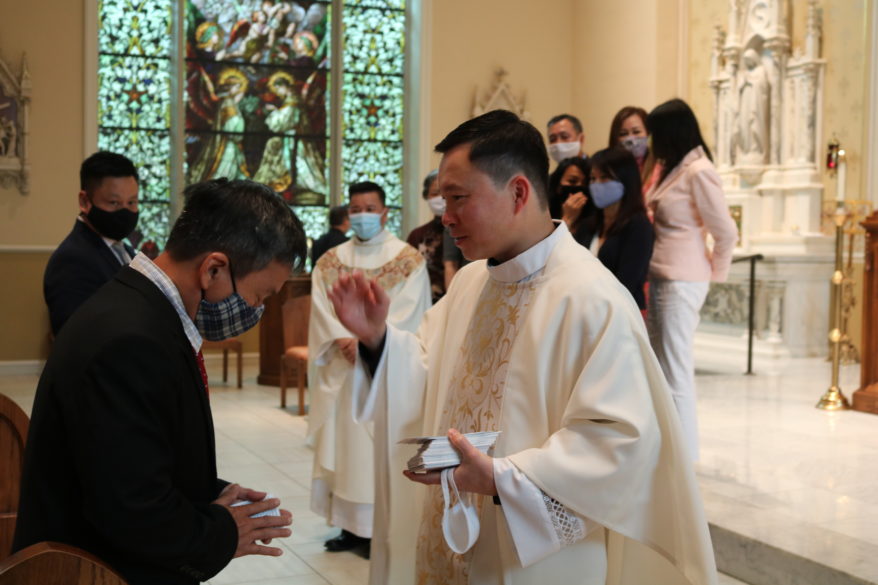
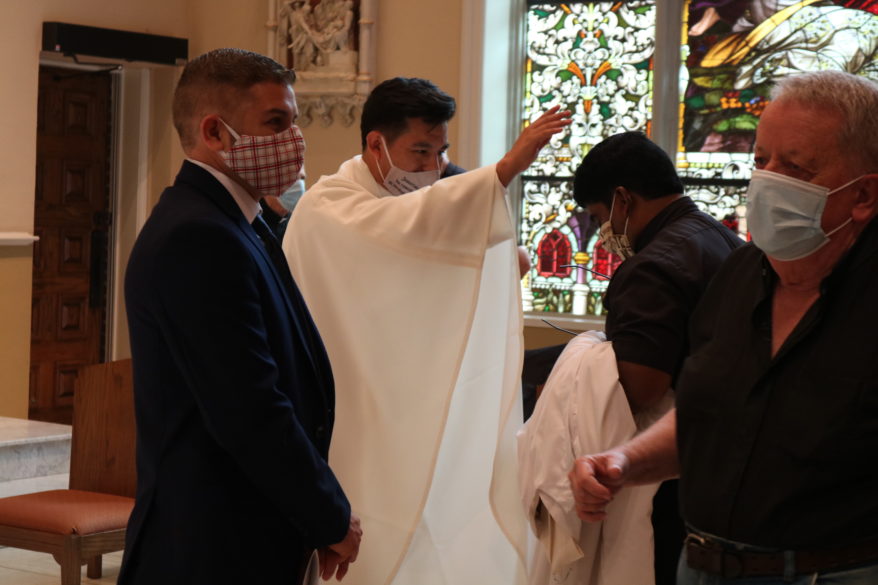
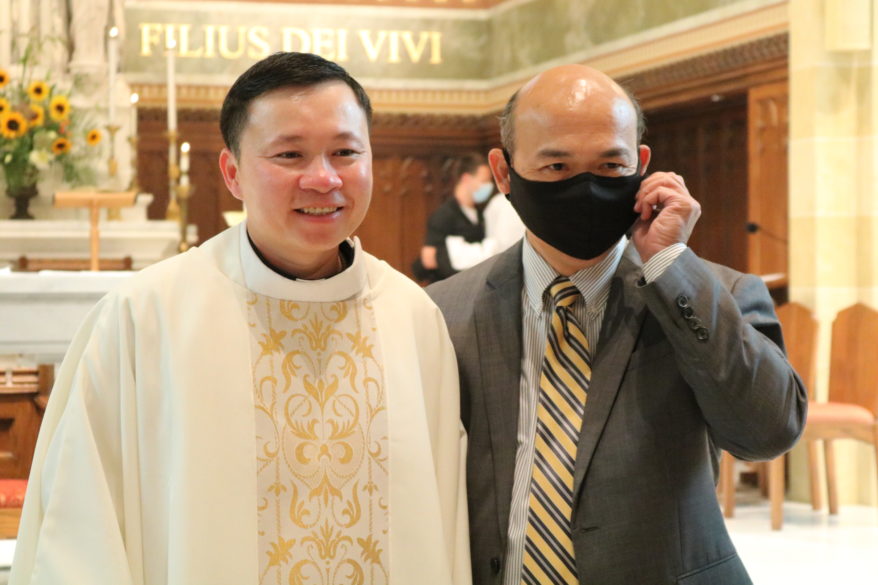
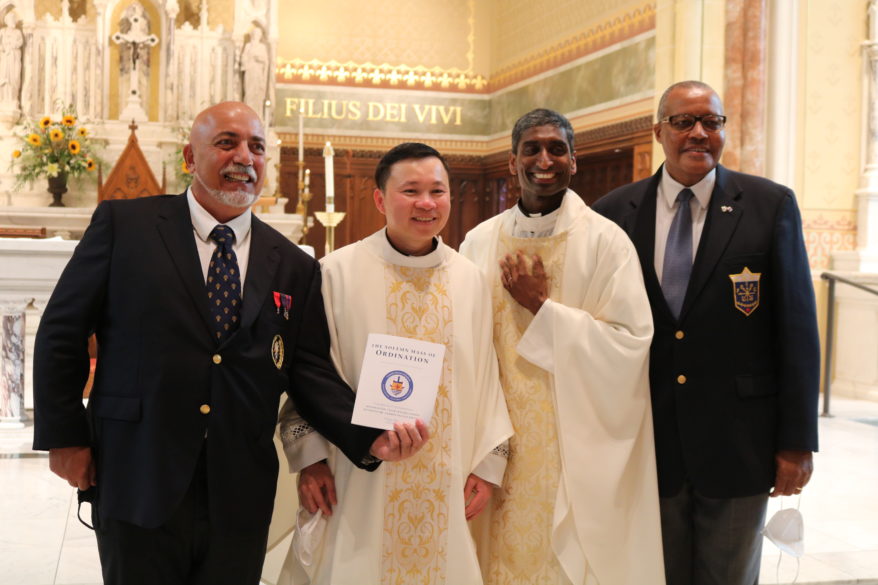
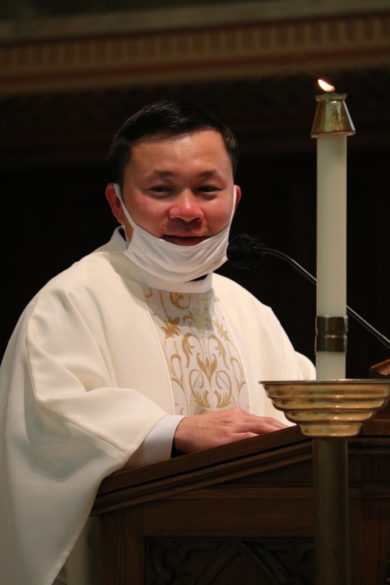
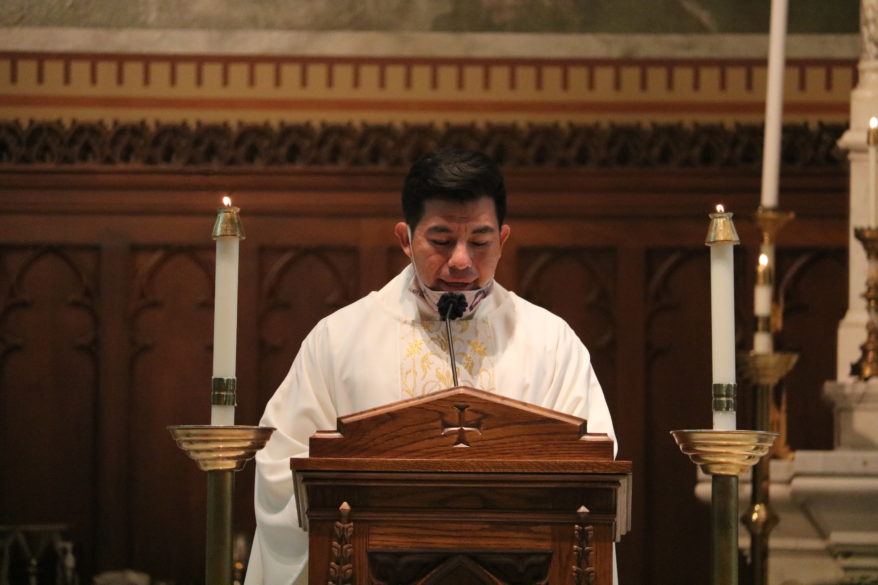
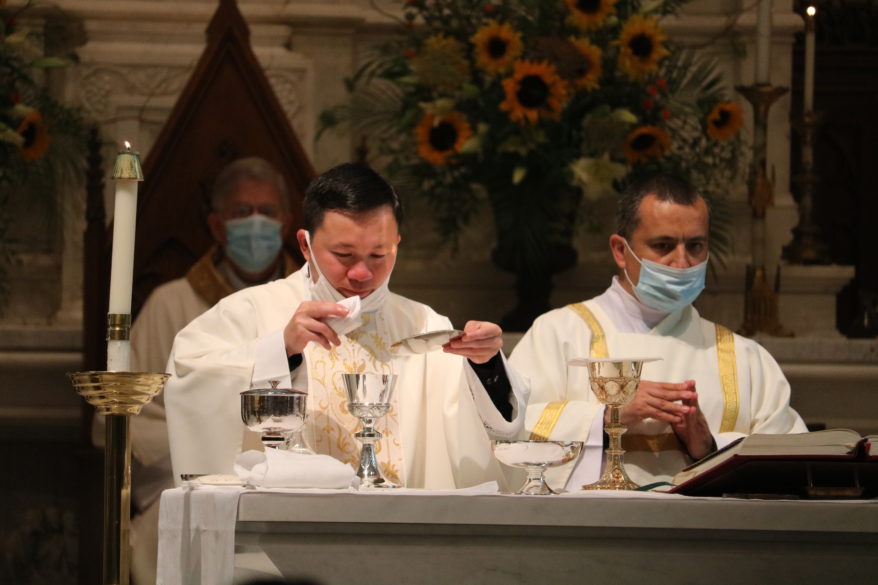
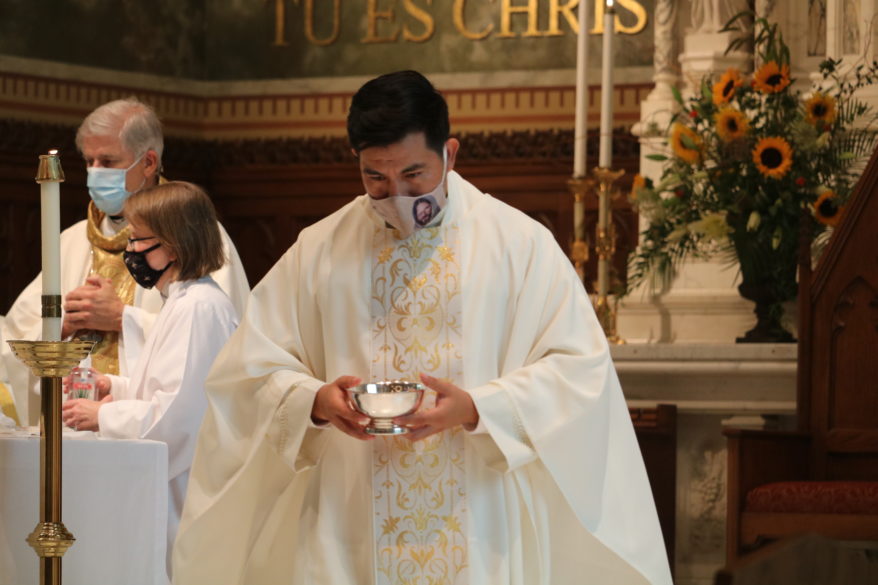
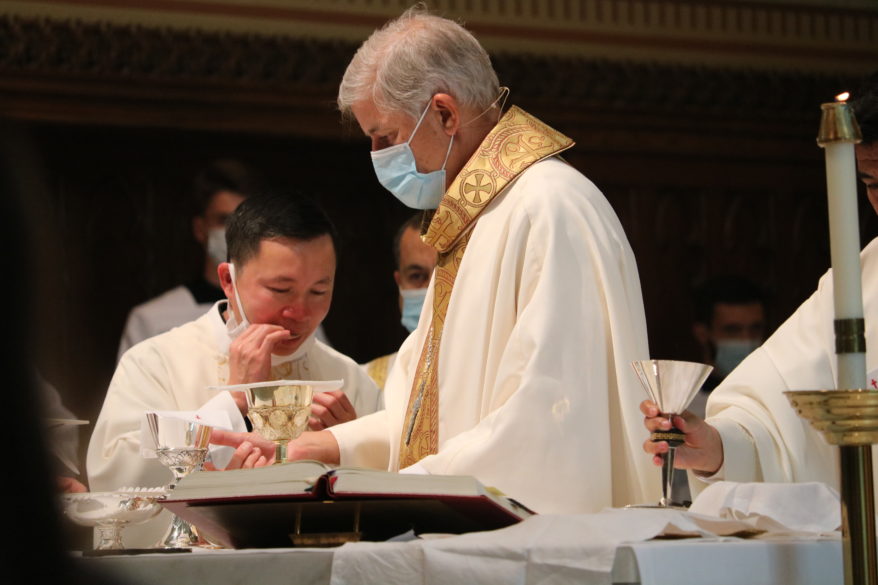
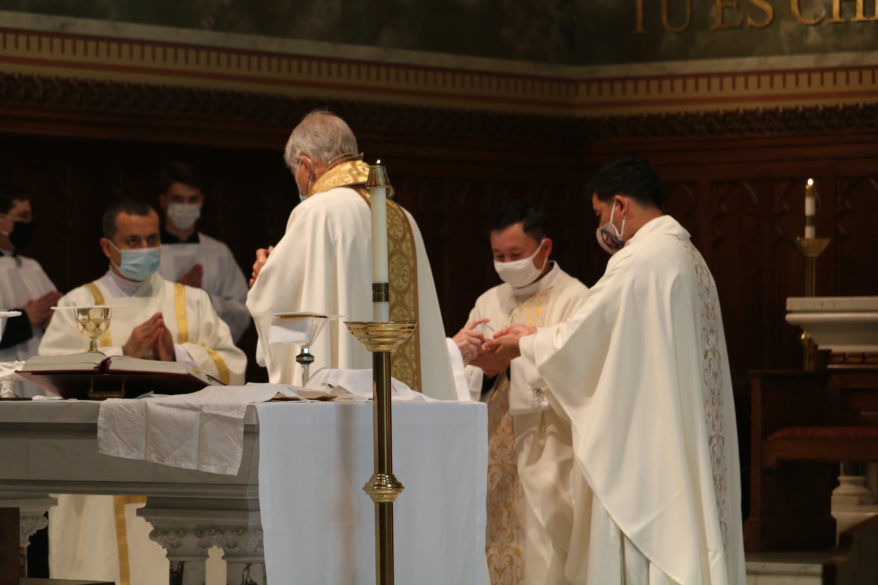
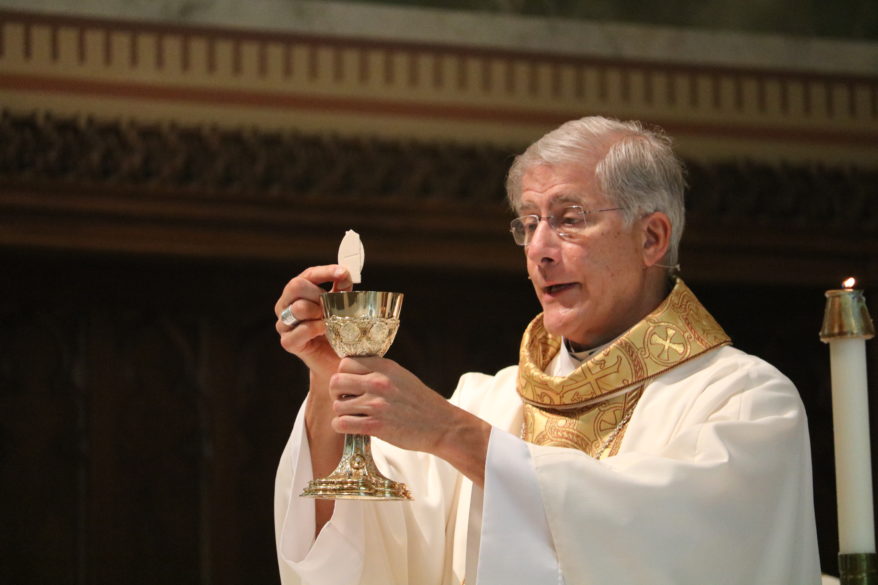
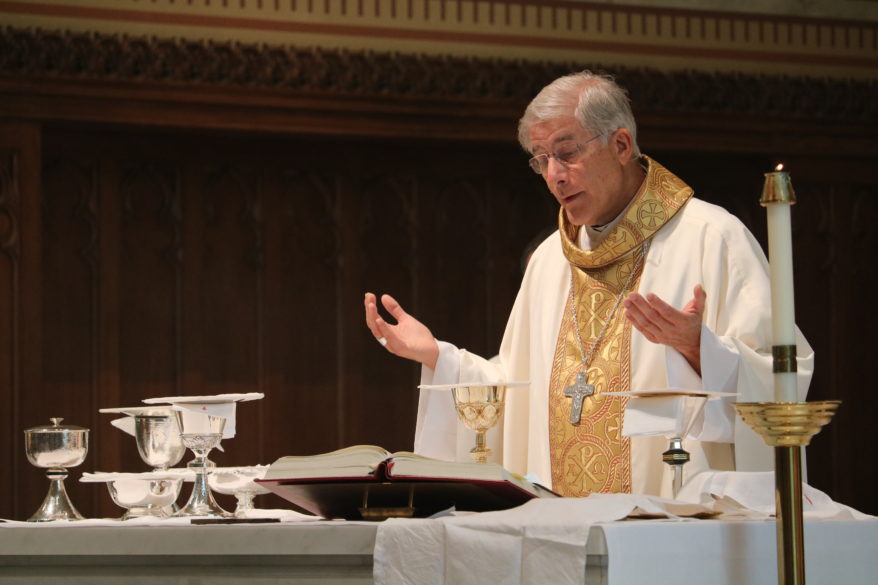
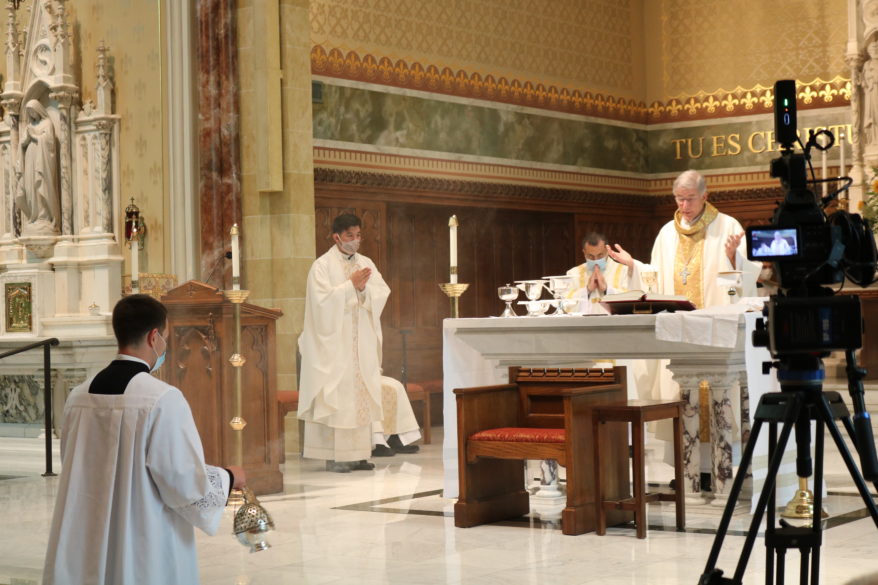
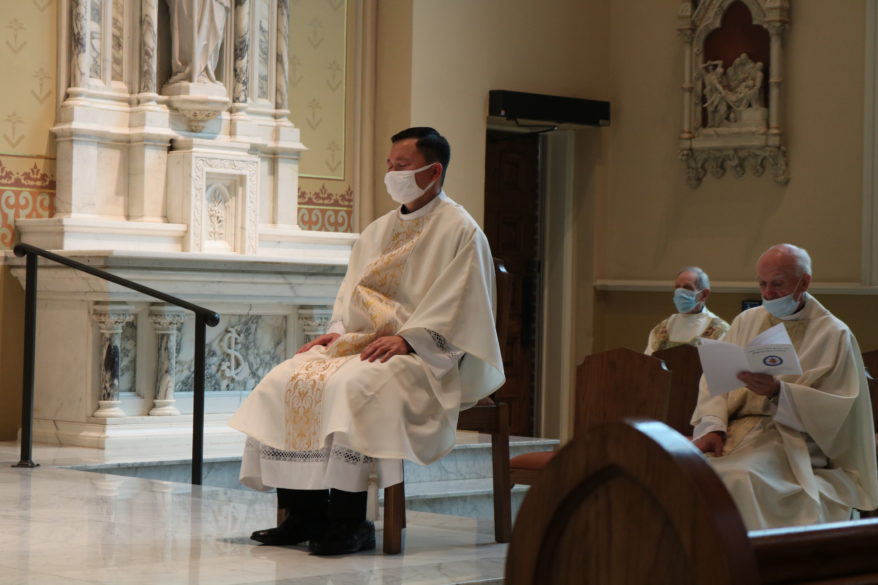
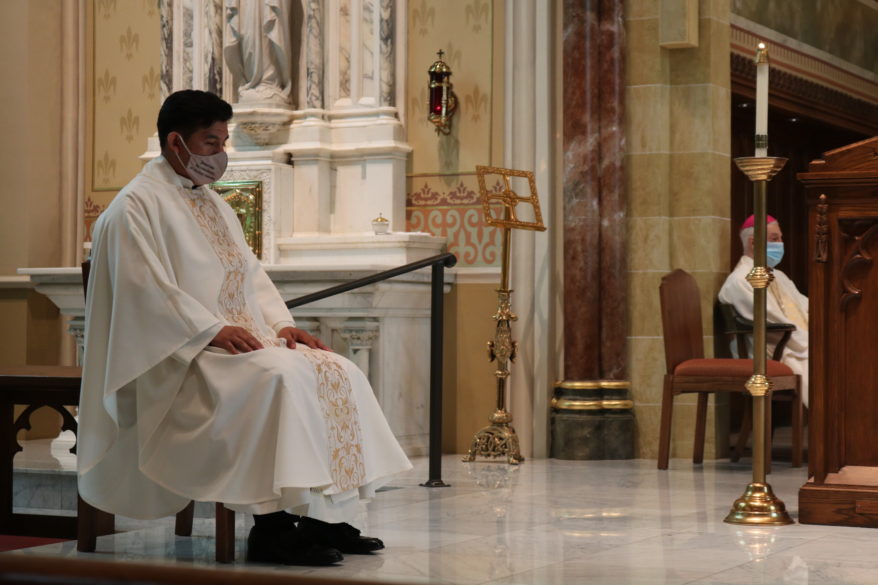
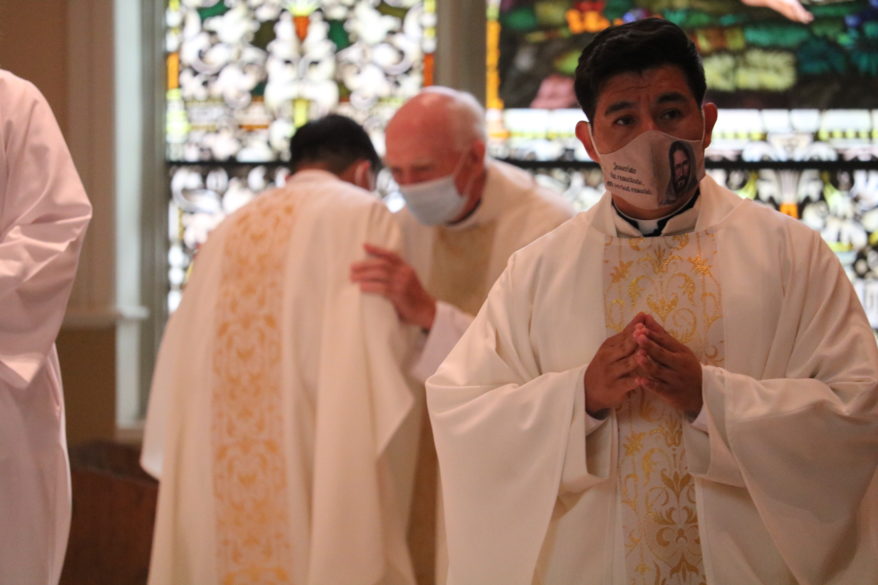
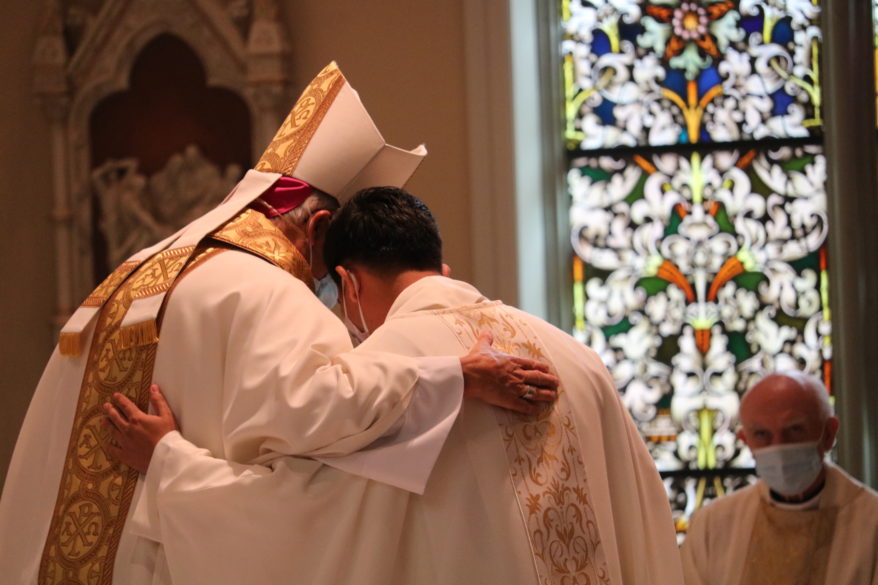
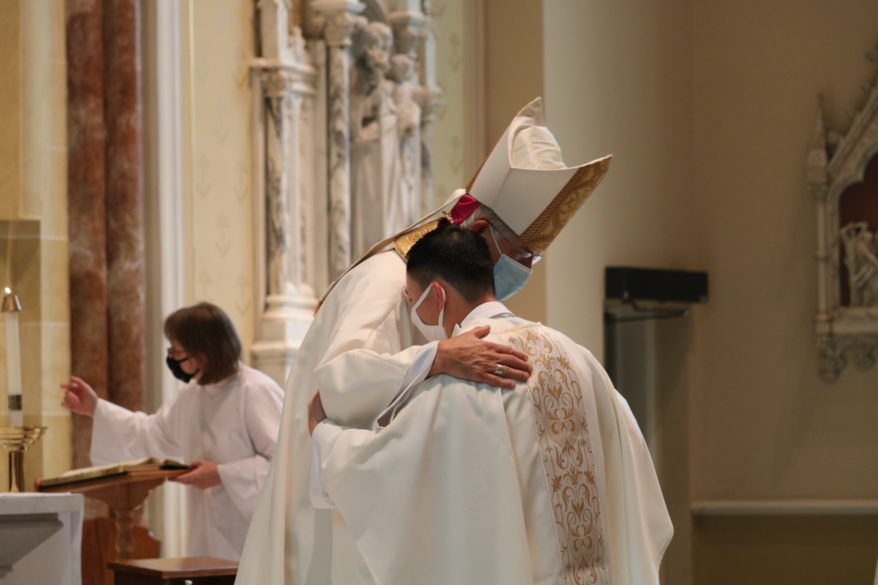
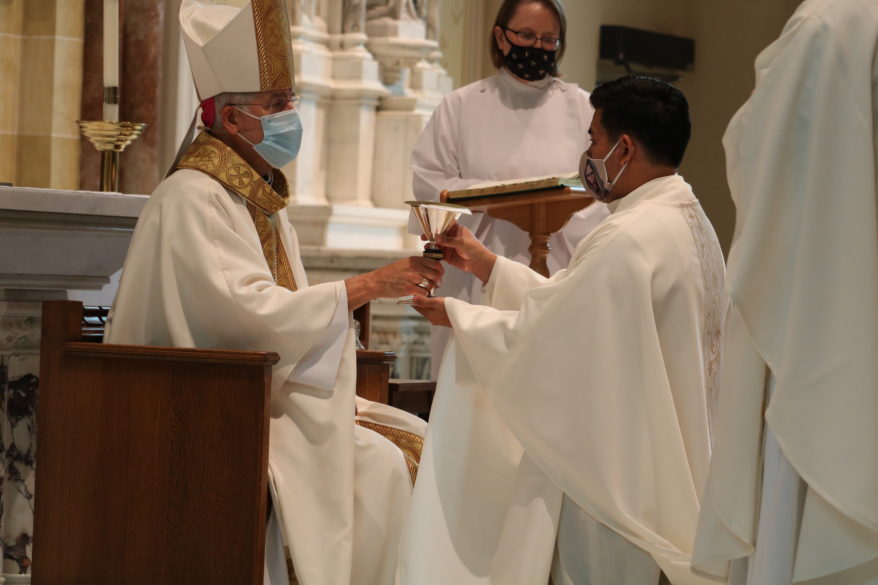
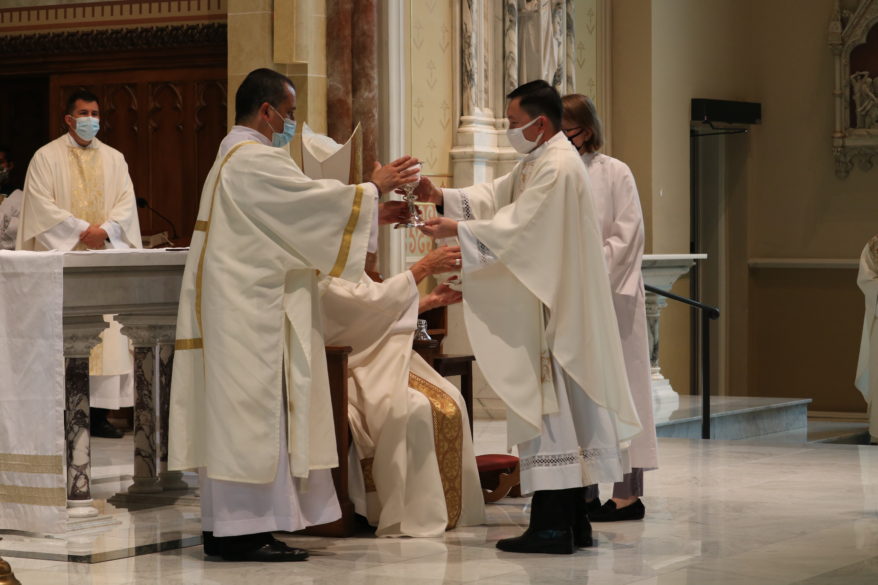
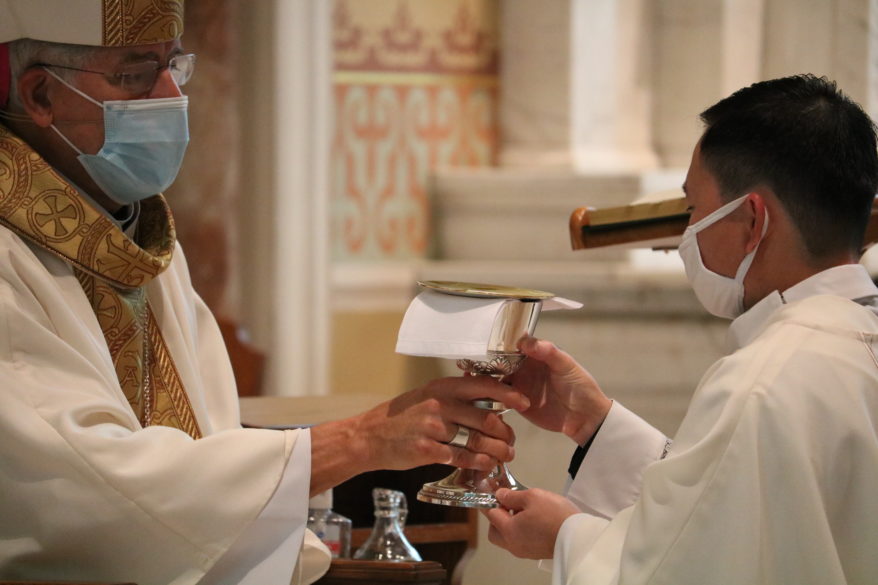
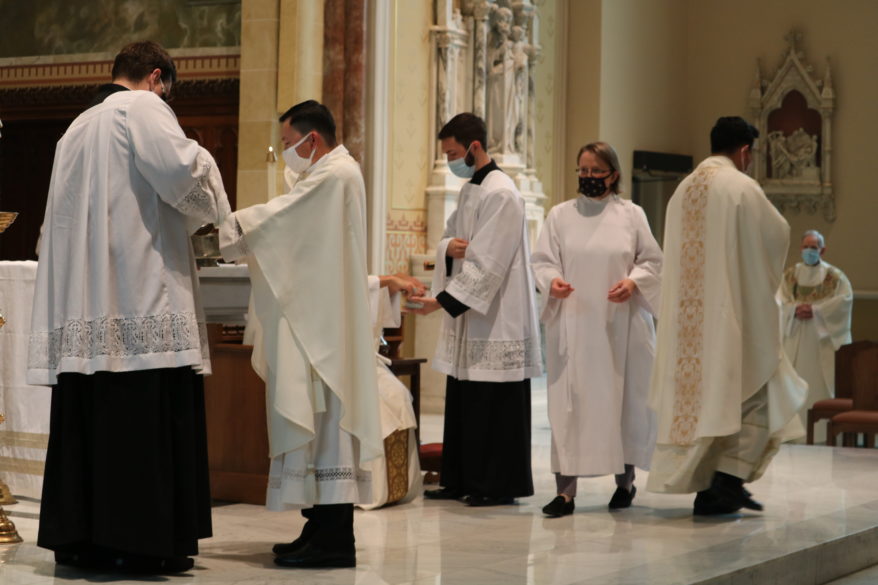
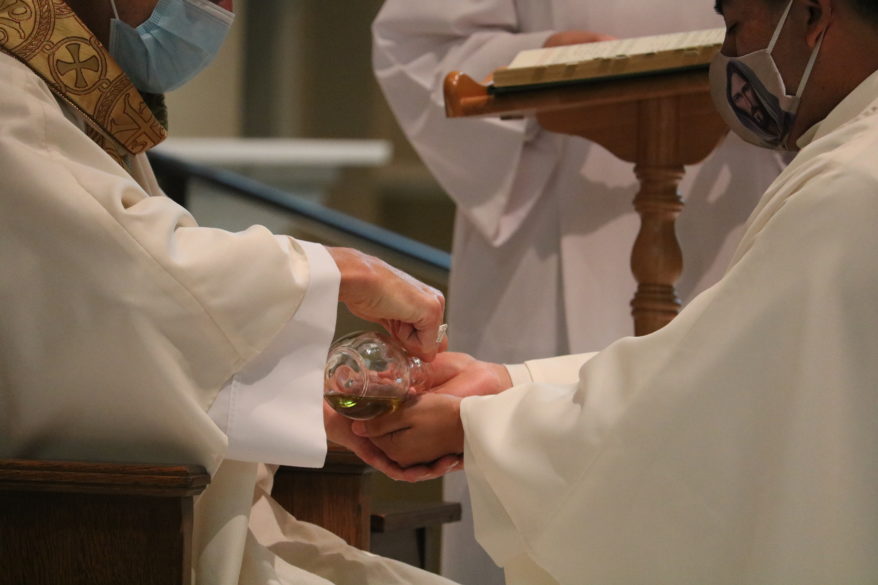
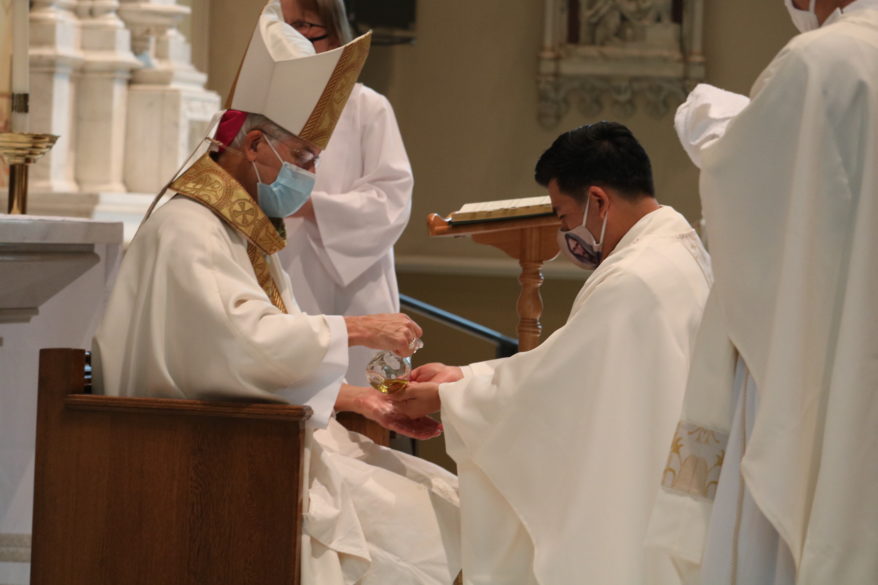
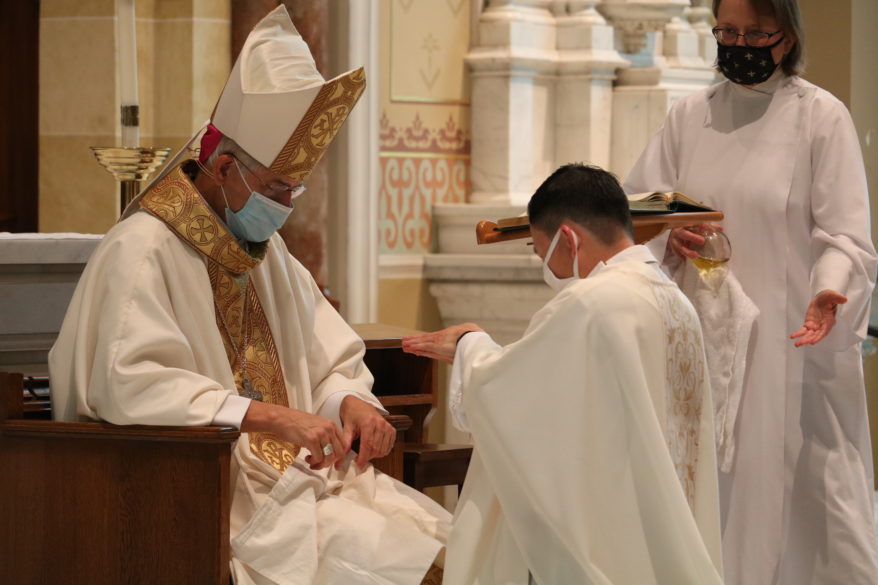
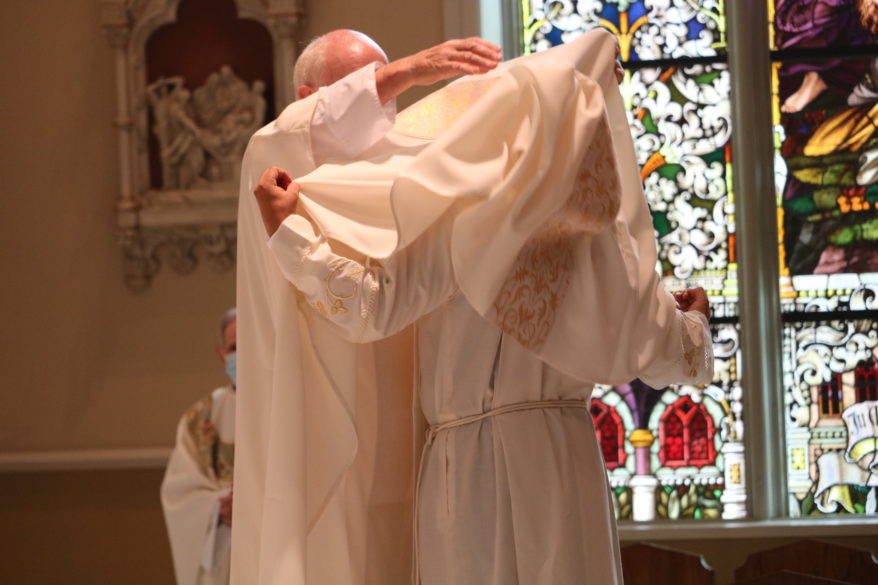
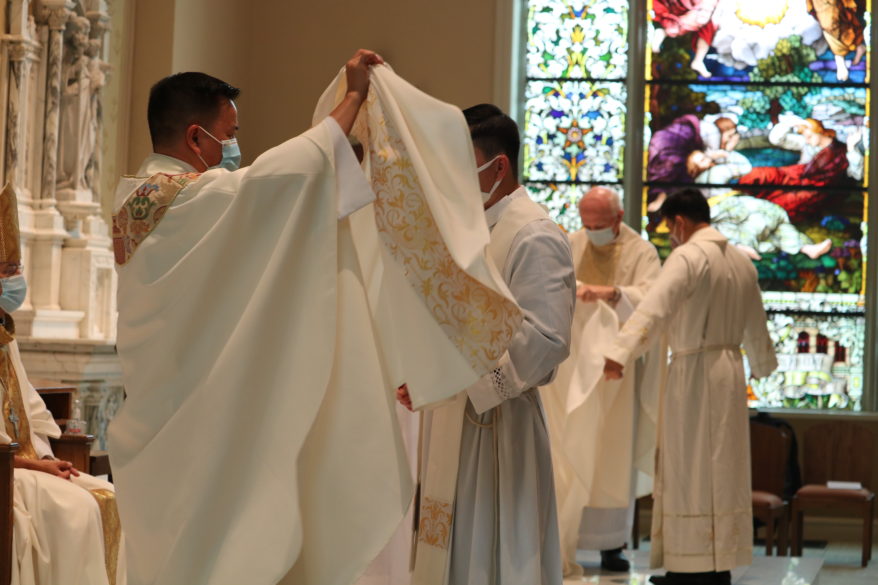
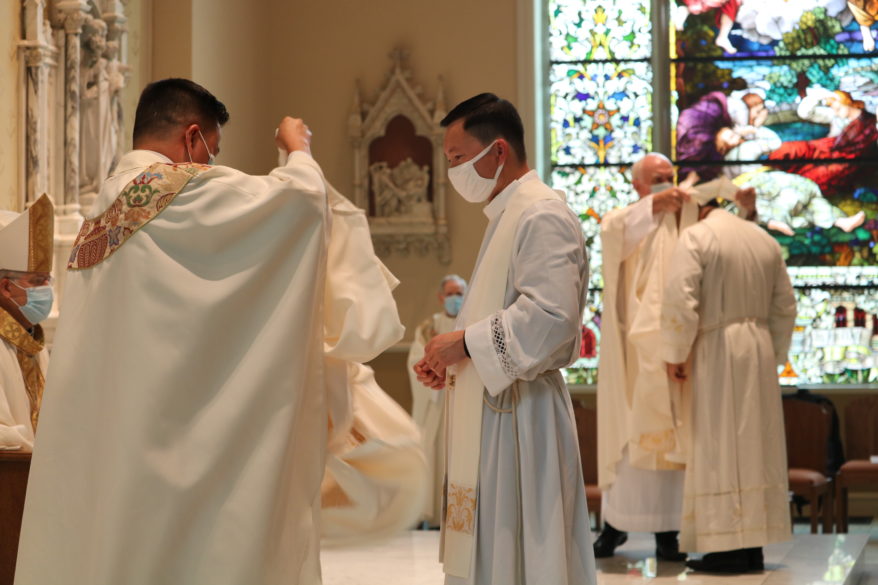
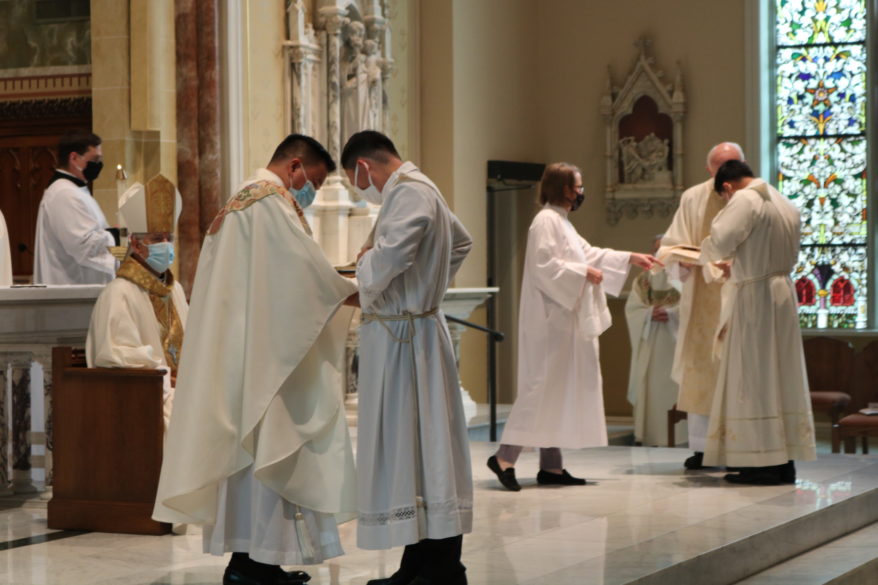
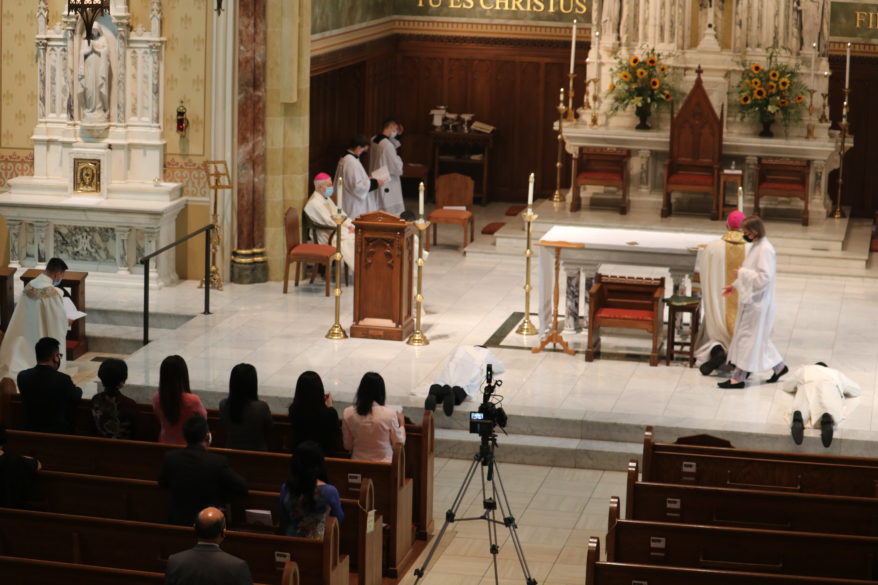
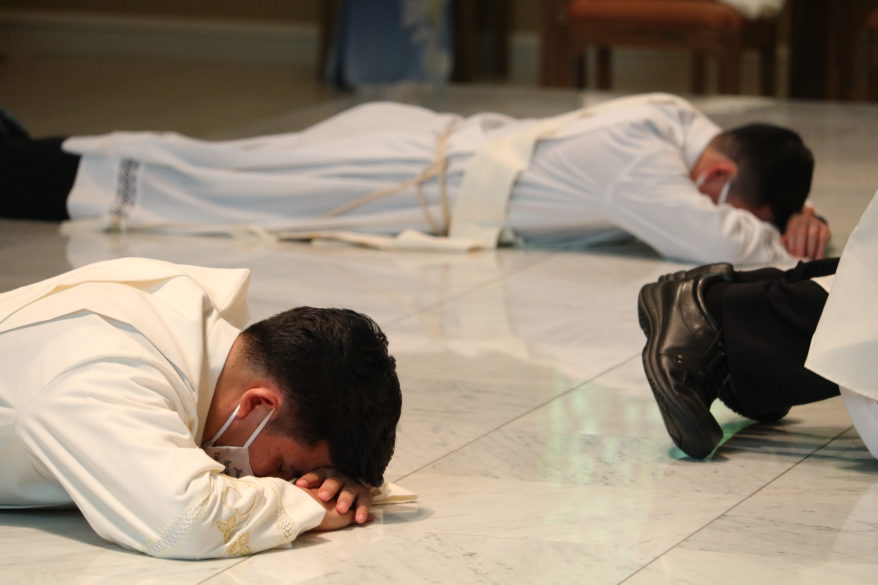
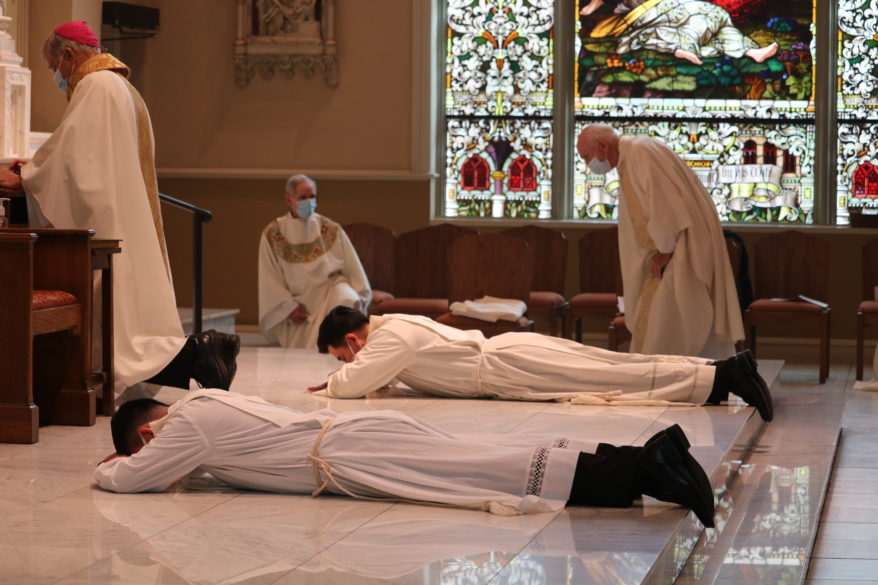
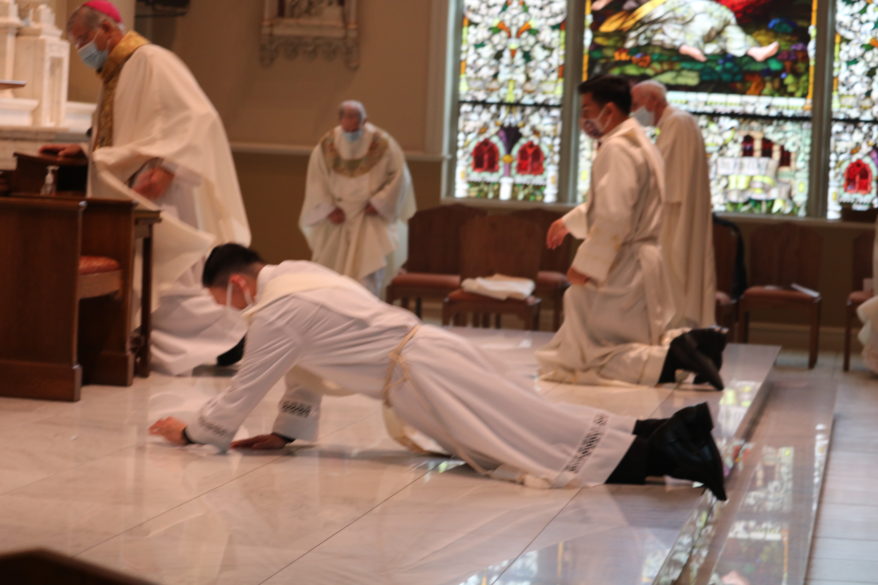
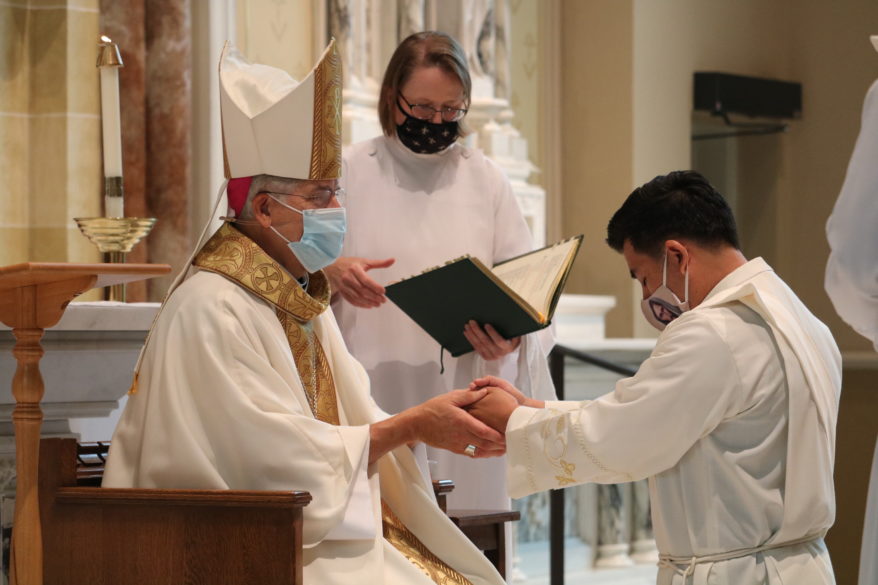
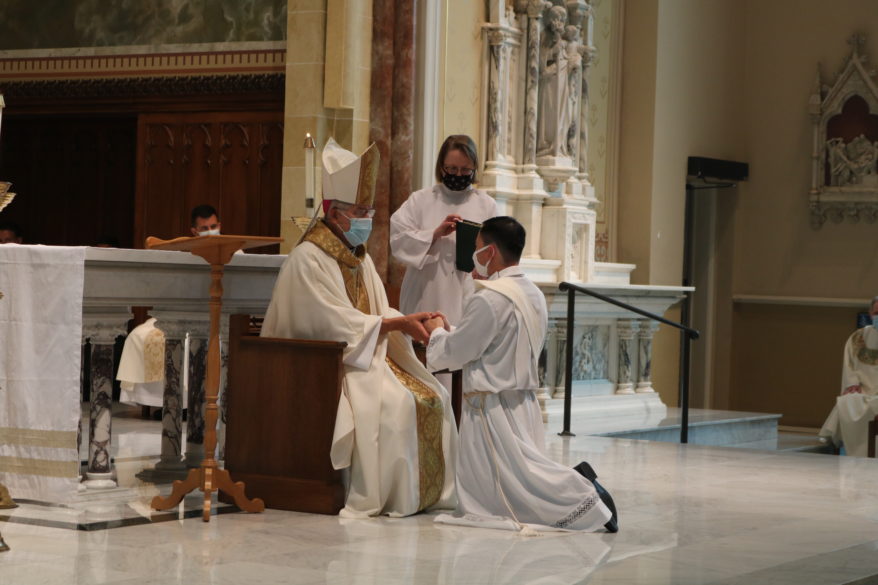
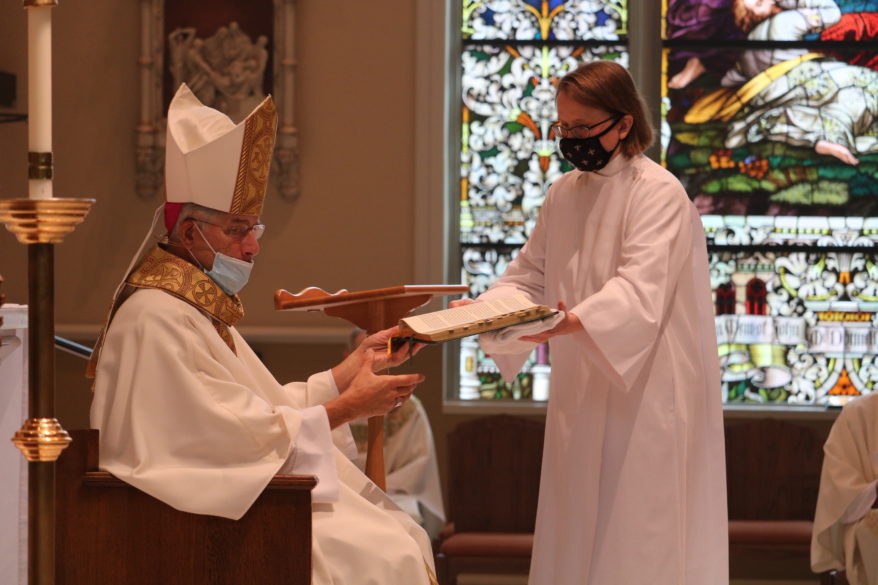
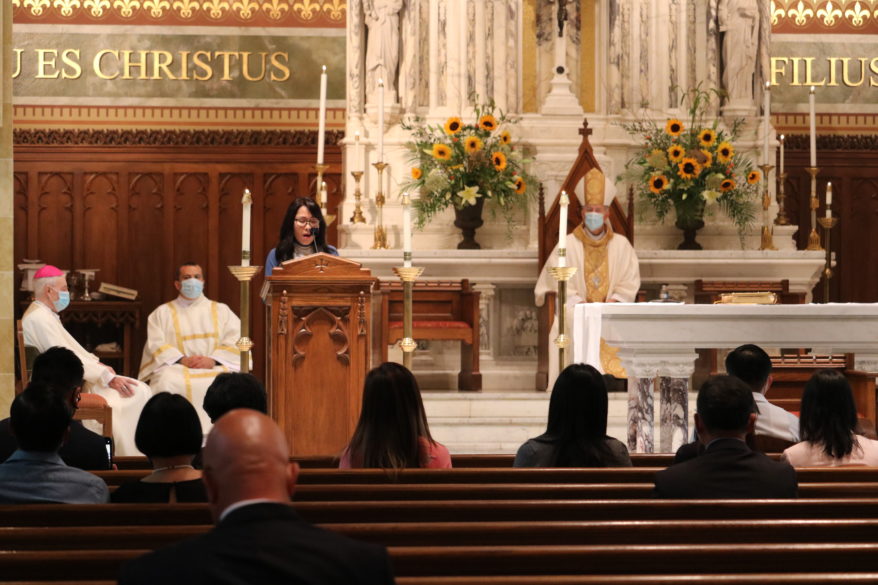
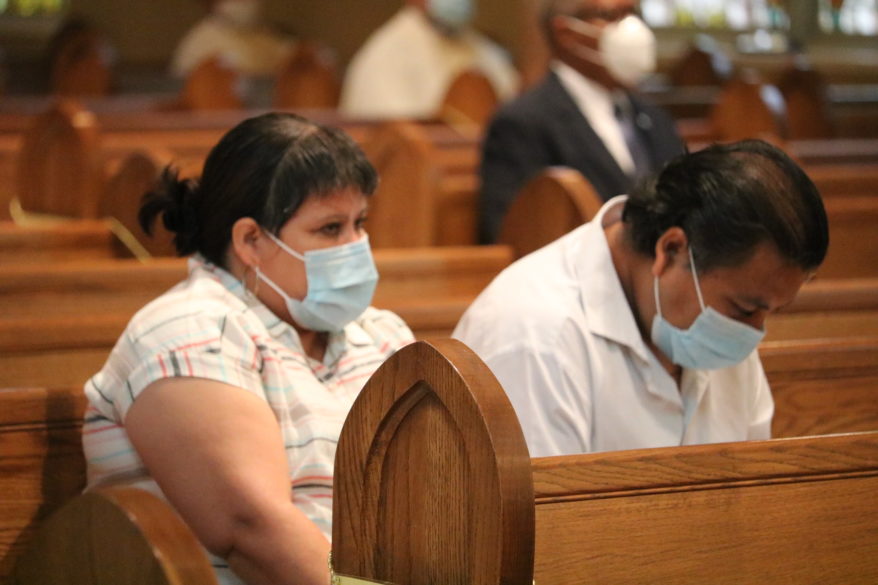
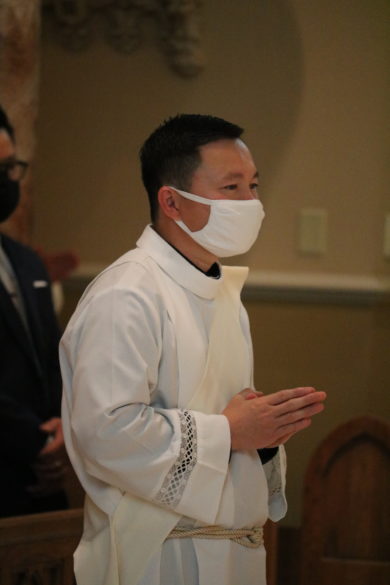
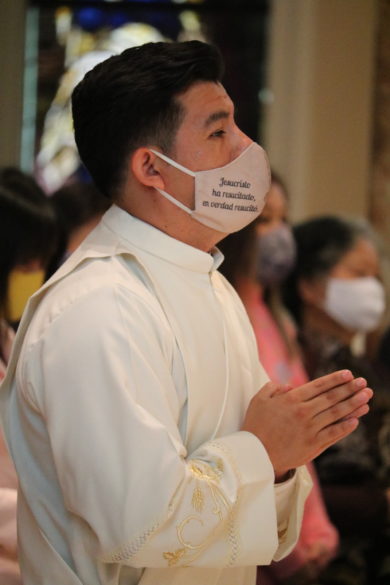
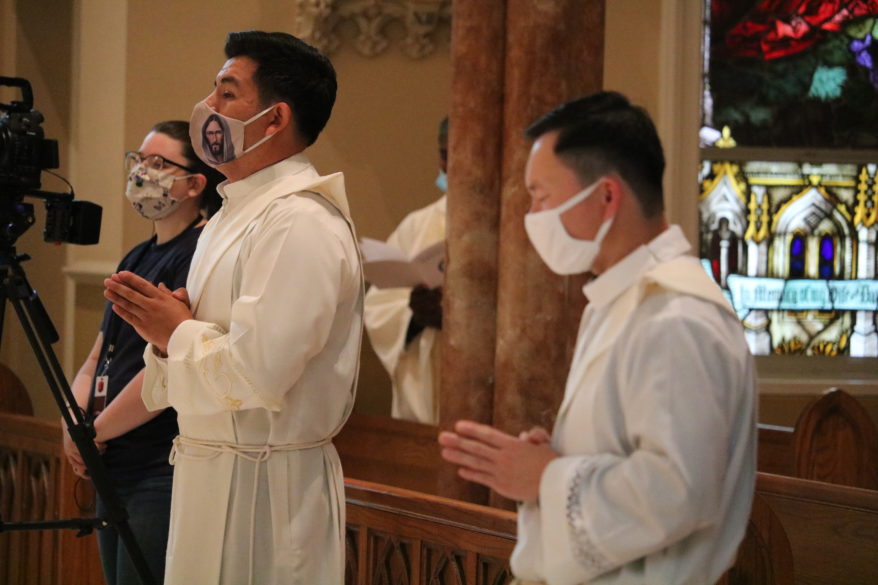
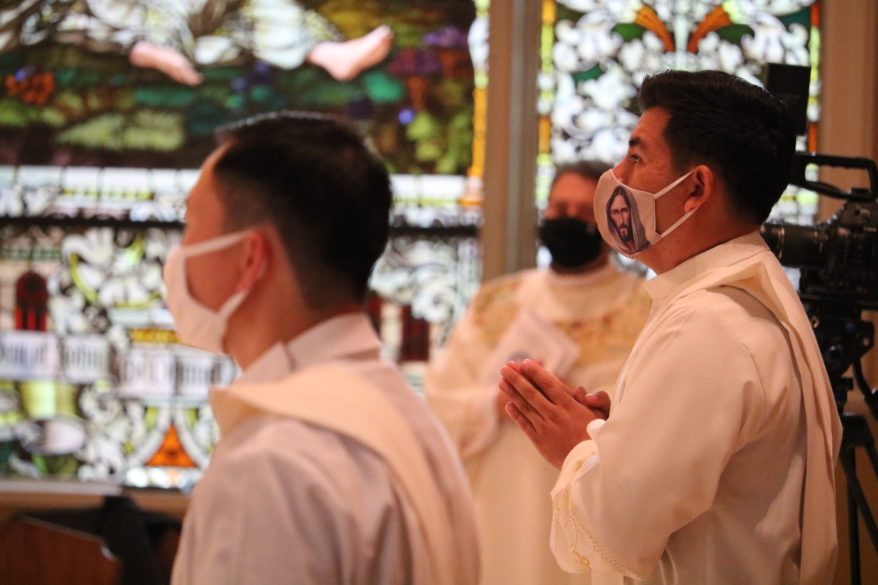
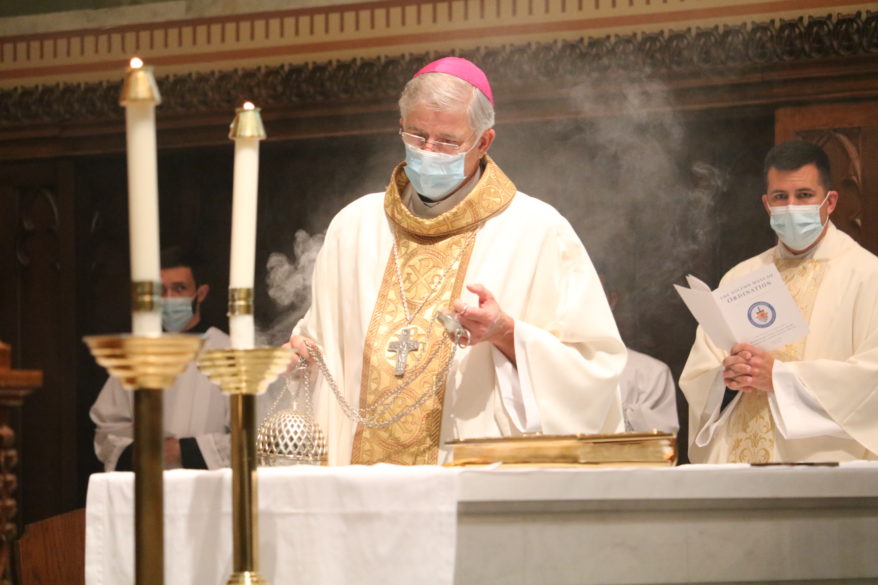
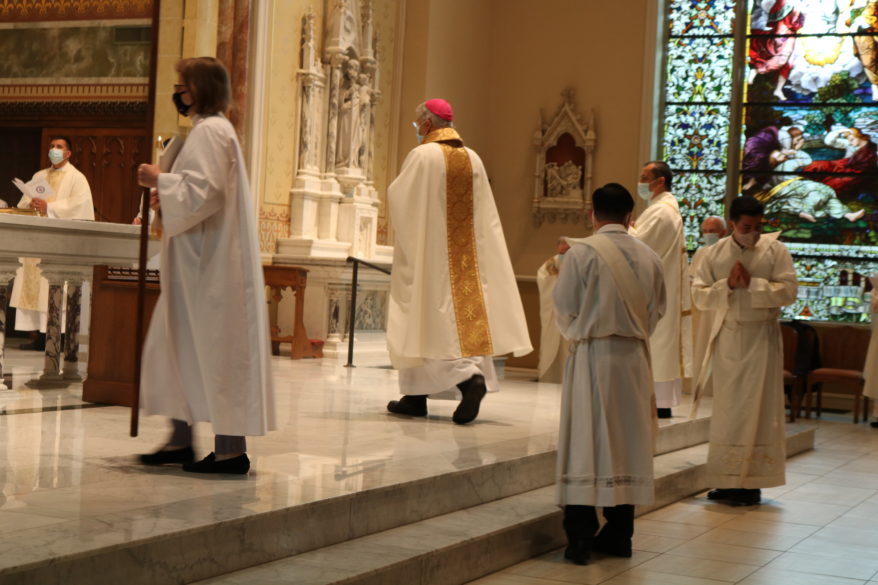
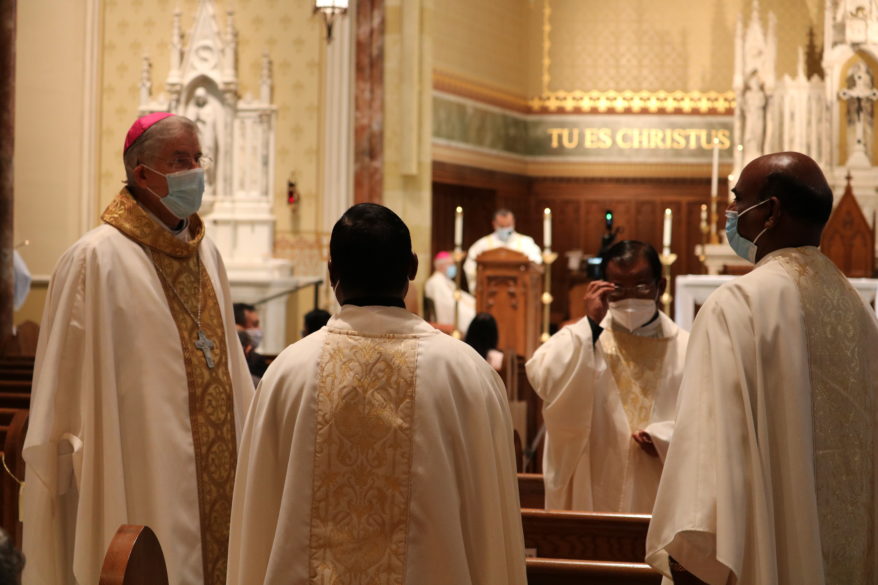
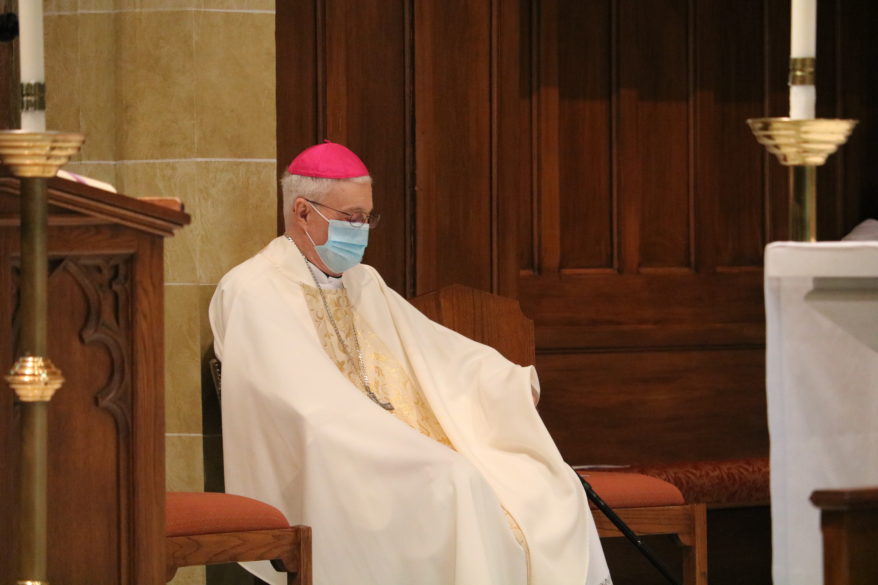
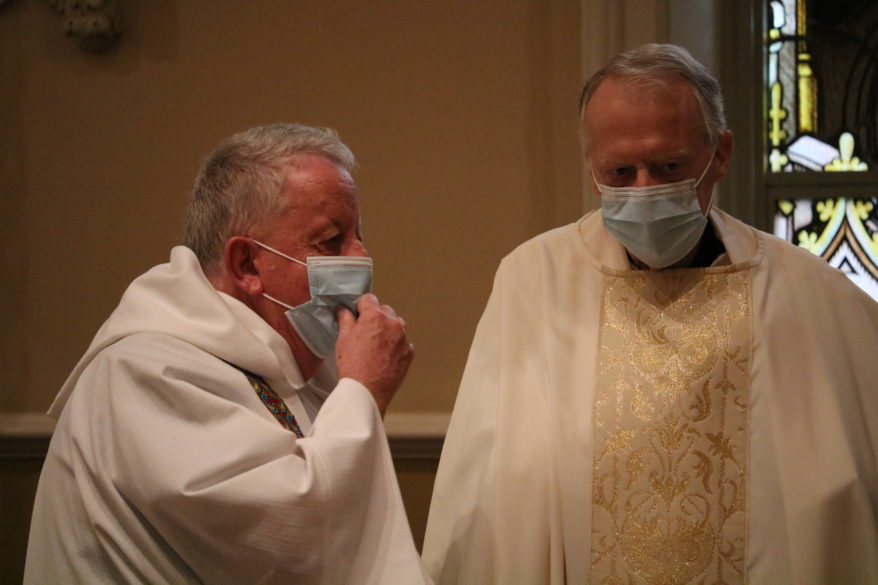
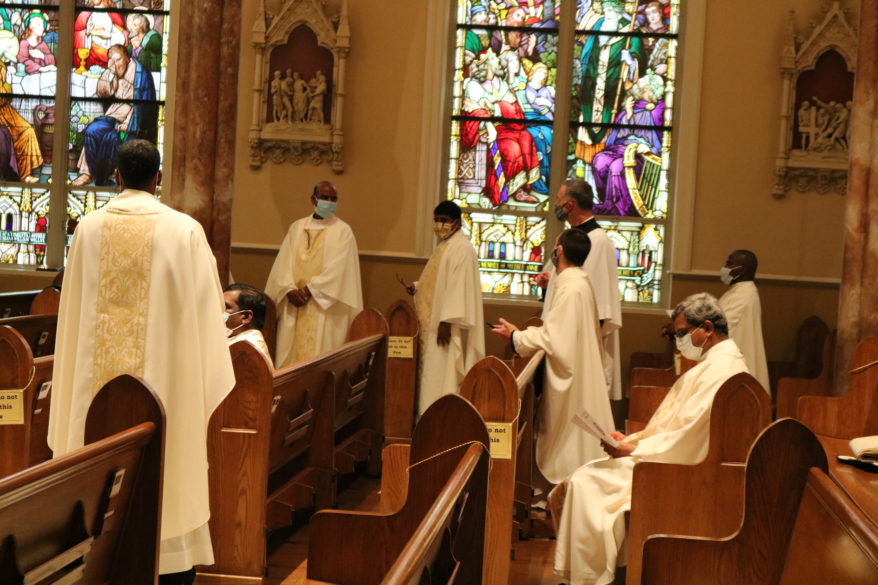
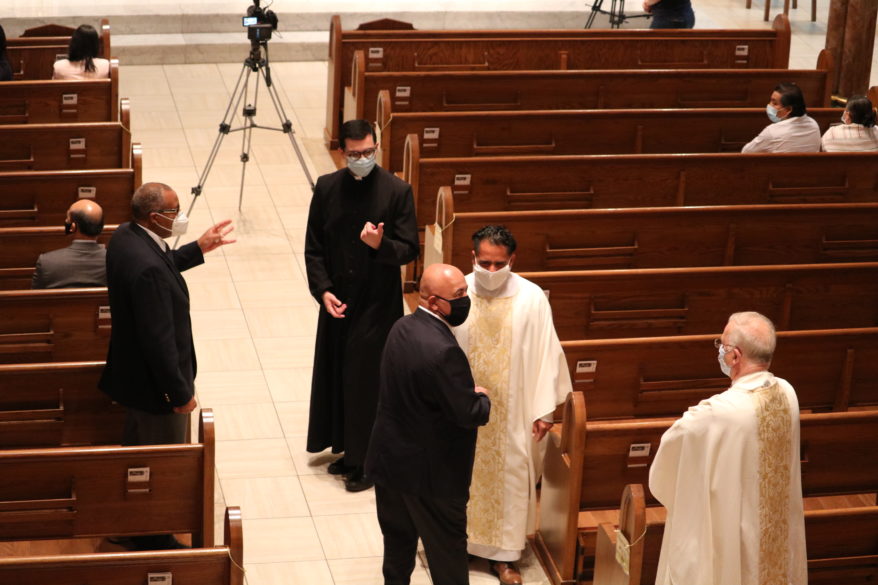
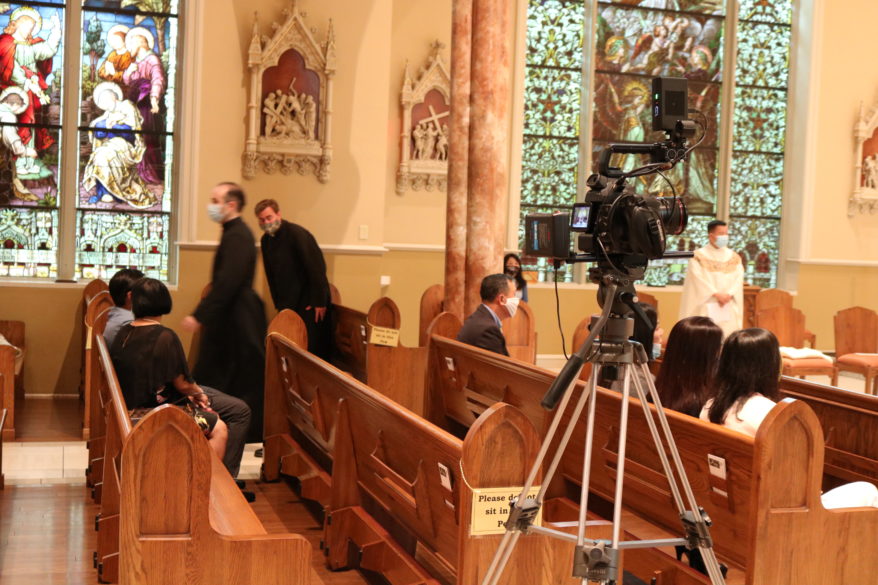
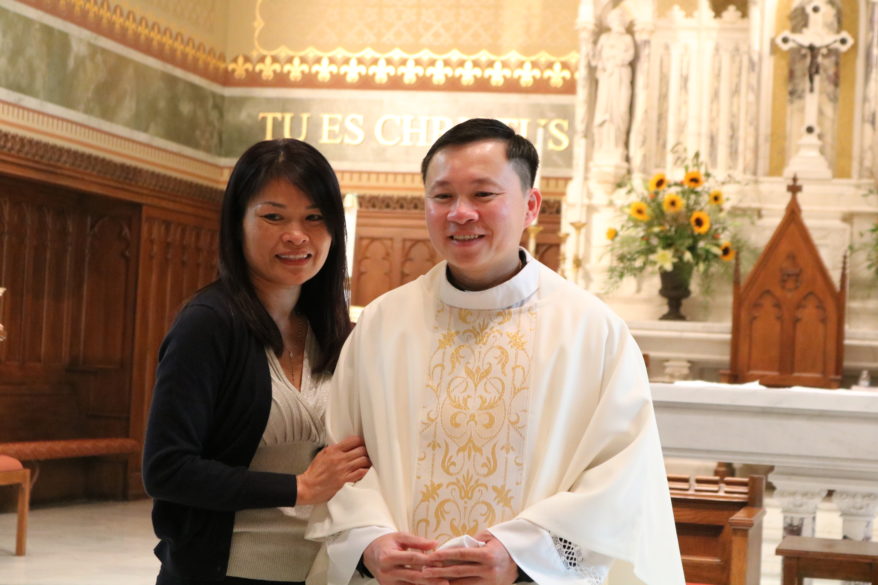
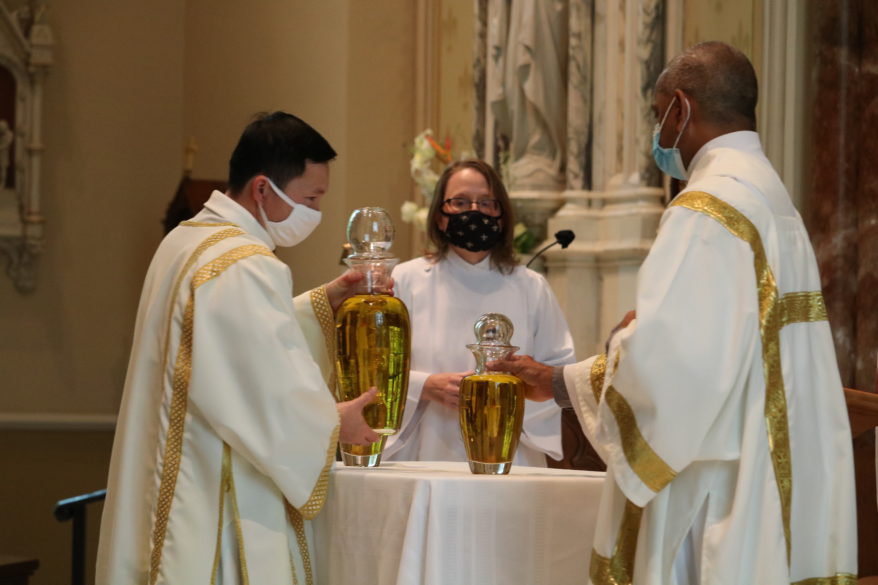
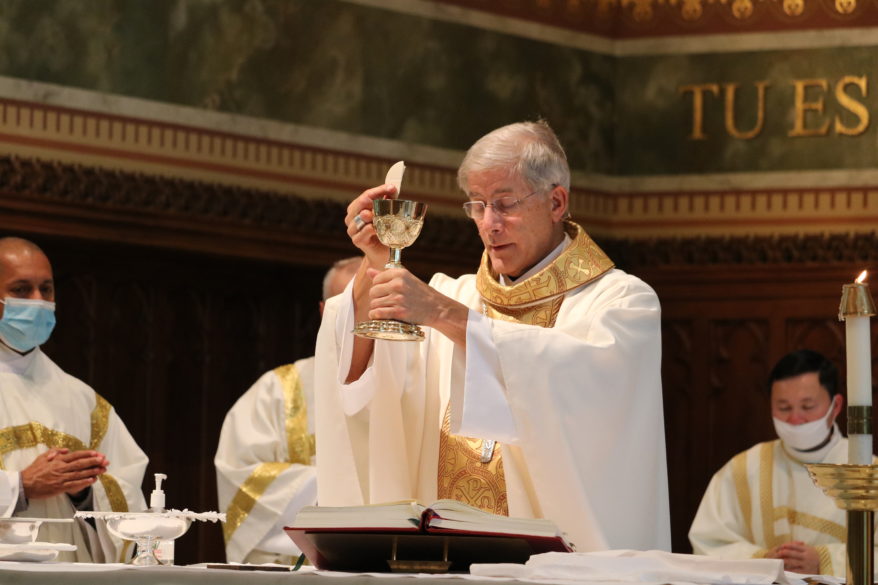
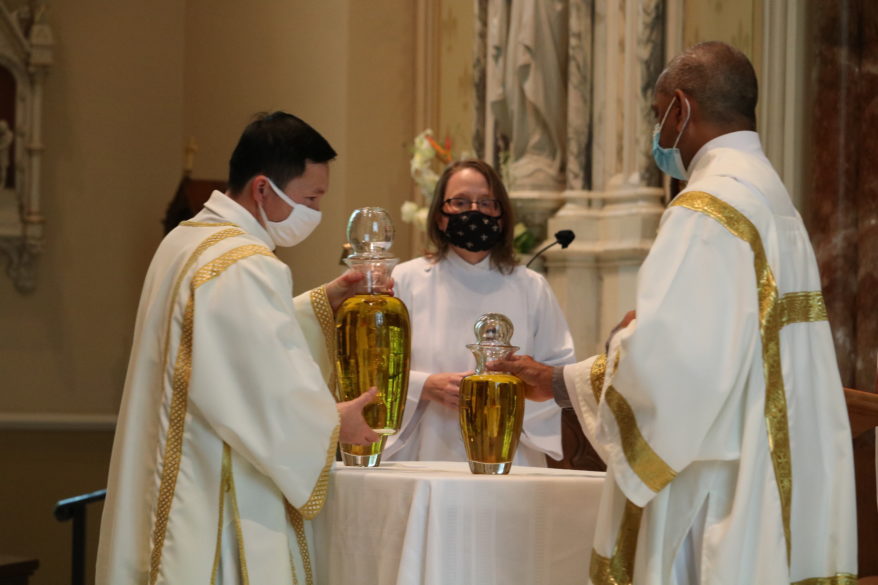
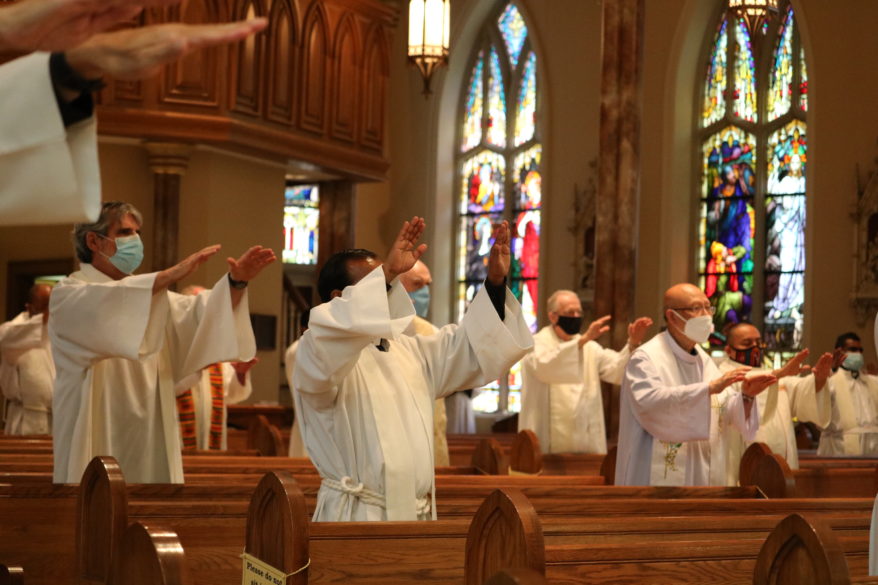
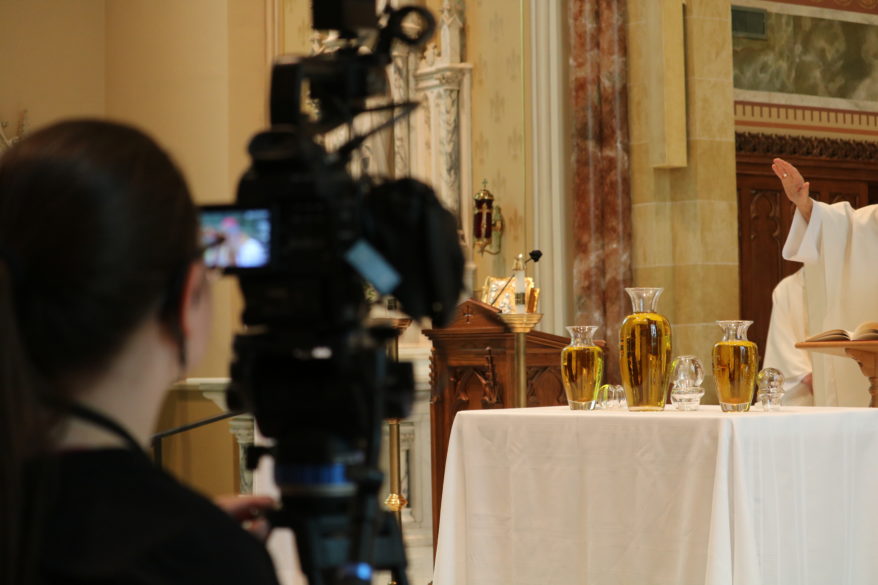

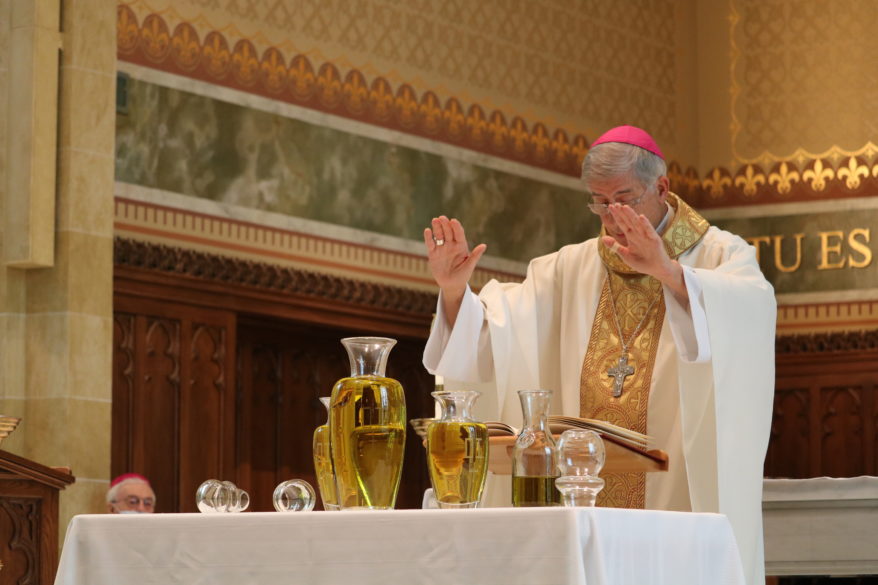
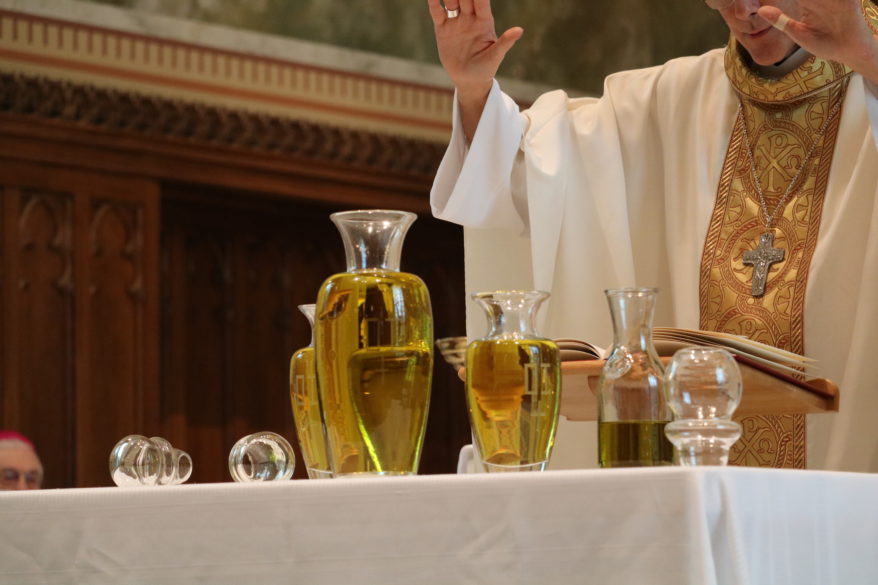
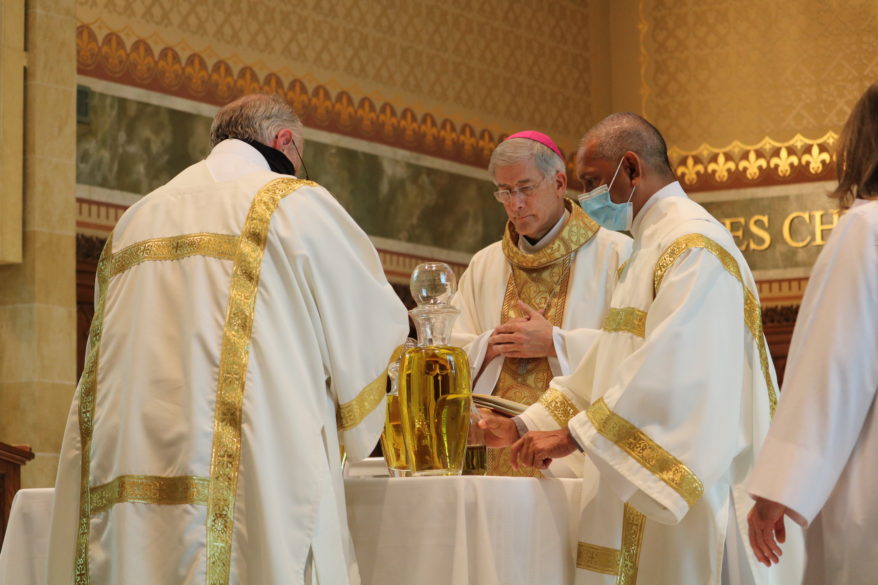
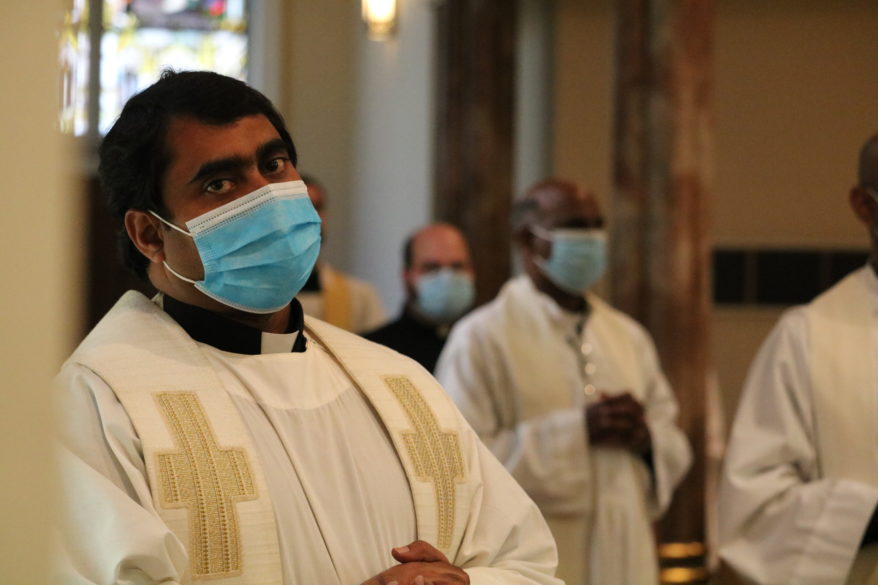
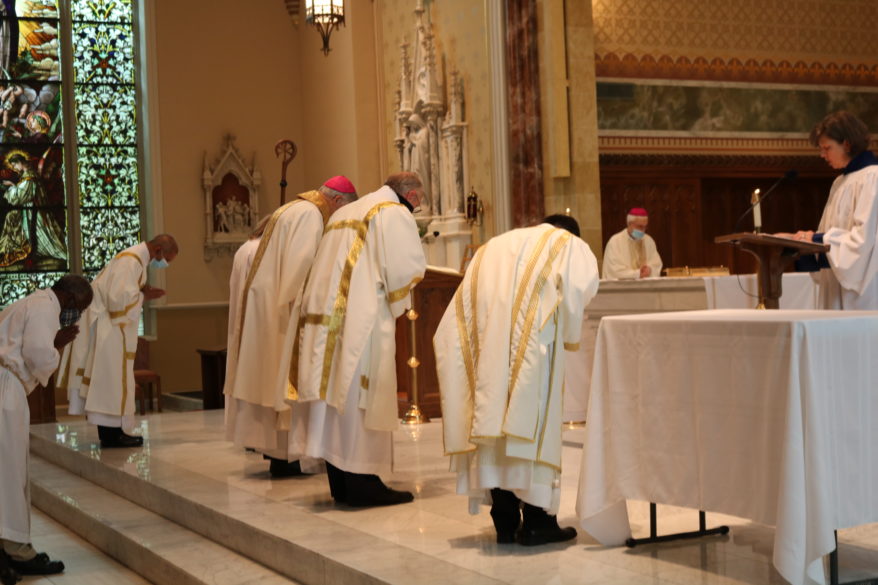
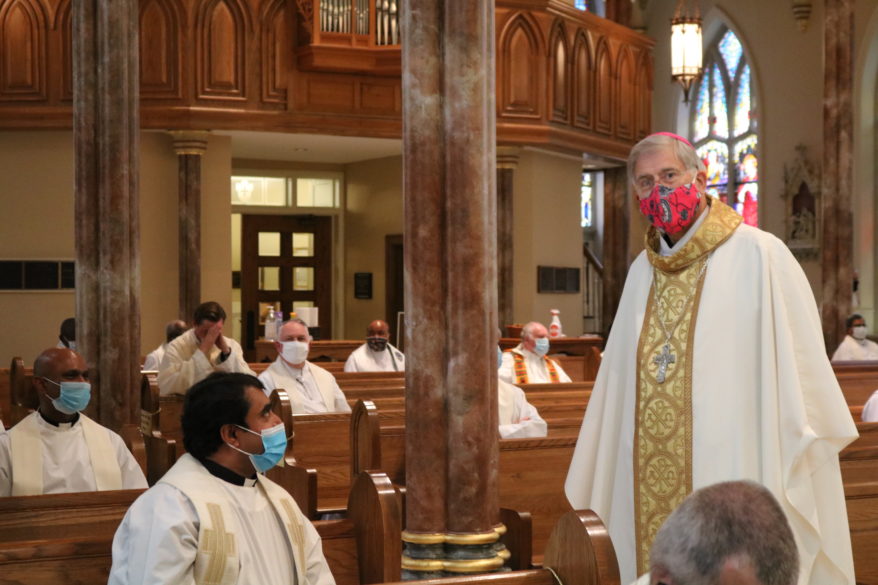
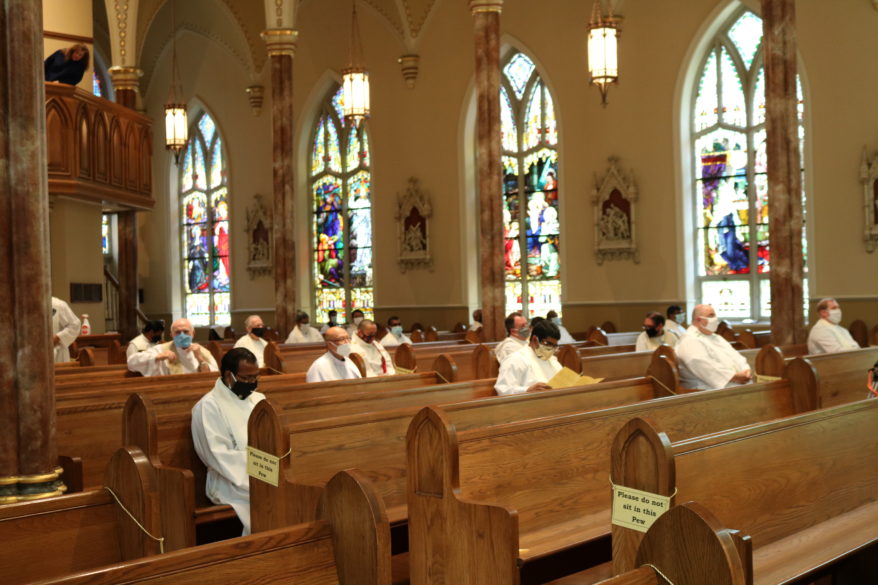
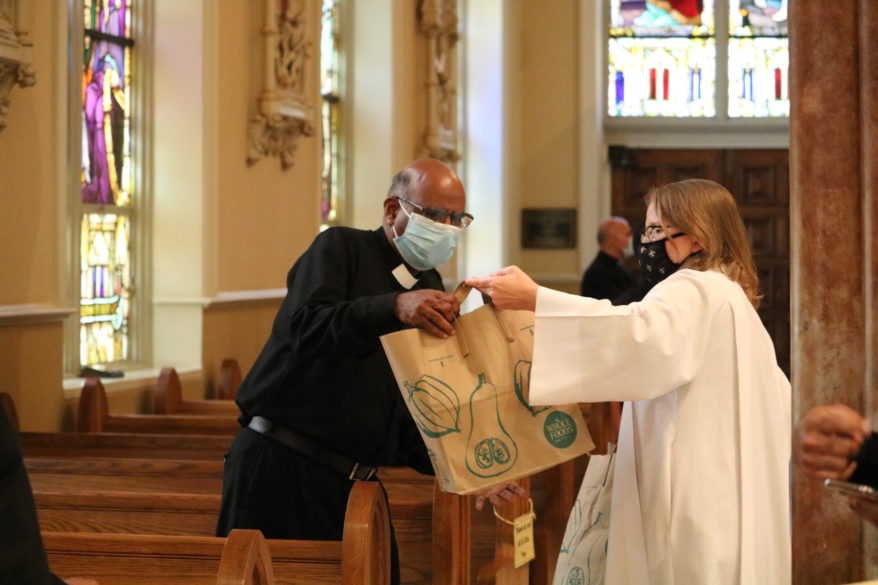
Por Daisey Martinez
“La gente de Choctaw cree que cuando tienes una habilidad o un regalo, se lo das a otra persona de la familia, y creo que mi abuela me dio estos regalos, el de de costura, Kaylee y Michelle,” dice Tina Routh.
Tina, su hija Kaylee Routh, su prima Michelle Hickman y su amiga Gwendolyn Hickman han realizado hasta el momento más de 4,536 máscaras faciales. Promedian alrededor de 100 máscaras por día.
Este proyecto comenzó a mediados de marzo cuando estas mujeres de buen corazón notaron la necesidad de máscaras en su comunidad. Al principio, solo las estaban distribuyendo a familiares y amigos, pero luego creció su pequeño proyecto. Han estado proporcionando máscaras a diferentes departamentos a lo largo de la Reserva y al Centro de Salud Choctaw que más ha necesitado las mismas. También envían máscaras a otras personas que viven en diferentes Reservas y a miembros tribales que viven fuera del estado.

Estas increíbles mujeres hacen este servicio porque han visto morir a muchos de sus seres queridos durante esta pandemia. Como miembros de la tribu, saben que es importante ponerse de pie y retribuir cuando sea necesario.
Agradecen a Dios por los dones y las oportunidades que se les han dado y porque han podido ayudar a otros miembros del Cuerpo de Cristo. También están agradecidos por el Padre Bob Goodyear, quien siempre ha mostrado su amor y apoyo a la gente Choctaw.
“No necesitamos pensar en nosotros mismos; tenemos que pensar en los demás,” compartió Gwendolyn y continuó,” cuando Tina y Michelle me pidieron ayuda, pensé en mi propia madre y en cómo quisiera que ella estuviera protegida y en cómo quiero que otros miembros de la tribu también estén protegidos.” Gwendolyn le da crédito a sus abuelos, que eran diáconos, por su forma de pensar.
Kaylee, una estudiante de último año de la Universidad del Sur de Mississippi (USM), compartió su razón para ser parte de este proyecto, “Vi la necesidad de máscaras en mi comunidad, especialmente para nuestros mayores, y en lugar de simplemente sentarme todo el día, lo cual es lo que estaba haciendo una vez que terminó la escuela, elegí hacer algo productivo que pudiera beneficiar a mi gente. Veo a nuestros mayores como maestros para mi gente; por lo tanto, cualquier cosa que pudiera hacer para proteger su salud, estaba más que dispuesta a hacerlo.”
Tina, Michelle y Kaylee son católicas, y Gwendolyn es bautista. Bromean sobre cómo no sostienen este hecho en contra de ella. Es algo hermoso cuando las personas pueden unirse por una gran causa. Se centran en su objetivo común: querer servir a otros a su alrededor.
Durante estos tiempos de división, es maravilloso ver la unidad en el trabajo. Estas mujeres realmente viven 1 Pedro 4:10: “Como buenos administradores de los diferentes dones de Dios, cada uno de ustedes sirva a los demás según lo que haya recibido.”
Michelle, Gwendolyn y Tina compraron gran parte del material utilizando sus propios fondos, pero también han recibido donaciones de otros, incluso de personas fuera del estado. Esta positiva retroalimentación realmente sorprendió y motivó aún más a estas mujeres y han apreciado toda la generosidad. Siempre aceptan donaciones para continuar con el esfuerzo de mantener a otros seguros, por lo que, si usted desea donar material como tela, hilo o elástico, envíe un correo electrónico a daisey.martinez@jacksondiocese.org.
La Tribu de Indios Choctaw de Mississippi es la única tribu de indios americanos reconocida federalmente que vive dentro del estado de Mississippi. Si desea obtener más información, visite Choctaw.org.